NBA draft: The best players who didn’t hear their names called

Your teams. Your favorite writers. Wherever you want them. Personalize SI with our new App. Install on iOS or Android.
BROOKLYN — The NBA draft is over, and as usual, there are some notable names who went unpicked. For some, the disappointment will sting, but teams always fill out their summer league rosters and throw darts on guys they liked during the evaluation process. The ability to negotiate their own contract terms as opposed to being paid at slot value can be a huge positive for guys who take advantage of opportunity.
With that in mind, here’s a rundown of the top players who went undrafted on Thursday, including the eight guys left on SI’s Big Board (52 of our top 60 guys were picked). Some reportedly have deals with teams already, and the others shouldn’t be far behind.
Gary Payton II, Oregon State
Big Board: 42
Payton is reportedly bound for the Rockets as an undrafted free agent. The son of the Sonics great Gary Payton profiles as a defensive specialist and could conceivably stick on a roster. The missing piece is his jump shot, which is likely a big part of what sank his stock.
• NBA draft grades: SI’s pick-by-pick analysis of first round | Team grades
Robert Carter Jr., Maryland
Big Board: 43
After garnering a little bit of hype as a second-round pick, Carter slipped out of the draft and has reportedly signed with the Warriors. He’s got a versatile, polished offensive game, is able to hit a three and score in the post, but he’s undersized for a four-man and has a lot of trouble defending. He has a chance and could be a fit with Golden State.
• The twists and turns of Robert Carter Jr.’s road to the NBA
Prince Ibeh, Texas
Big Board: 54
Nobody rolled the dice on Ibeh, who’s got immense physical attributes but doesn’t have much of an offensive game at all. As a college senior still learning a lot of concepts, his upside is somewhat limited, but if you can teach him to play defense, that 9' 4" standing reach and 7' 5" wingspan will do the talking.
Dorian Finney-Smith, Florida
Big Board: 55
Finney-Smith could still be a nice glue guy for somebody on the wing. With his toughness, size and length, he could play both forward positions. He’s not an awful shooter, either. He is what he is, in a sense, but that could be enough to crack a roster next season.
• See every 2016 NBA draft pick | Biggest NBA draft surprises
Cat Barber, NC State
Big Board: 57
Barber will play summer league with the Pelicans, according to reports. He’s quick off the bounce and can really score the basketball, so it’s easy to see him contributing off somebody’s bench. That said, he’s turnover-prone and will have to prove there’s more to his game. There are a lot of ways to plug him in and play a backup point guard.
Wayne Selden, Kansas
Big Board: 58
Even as a junior, Selden was a bit more of an athlete than basketball player, and while his skills have improved, it wasn’t enough to sell anyone. He should be able to guard multiple positions, but it’s not quite clear how he’s going to score. He’s not a great shooter or decision-maker.
Jarrod Uthoff, Iowa
Big Board: 59
Uthoff is an elite perimeter shooter with good size and was able to score effectively from the elbows in college, too. He’s 23 and doesn’t have a skill set much more diverse than that. His lack of athleticism suggests he may not be expanding his impact either, so you’re looking at a spot-up guy.
Best NBA first-round picks by draft slot
Best NBA First-Round Picks by Draft Slot
No. 1: Magic Johnson, Los Angeles Lakers (1979)
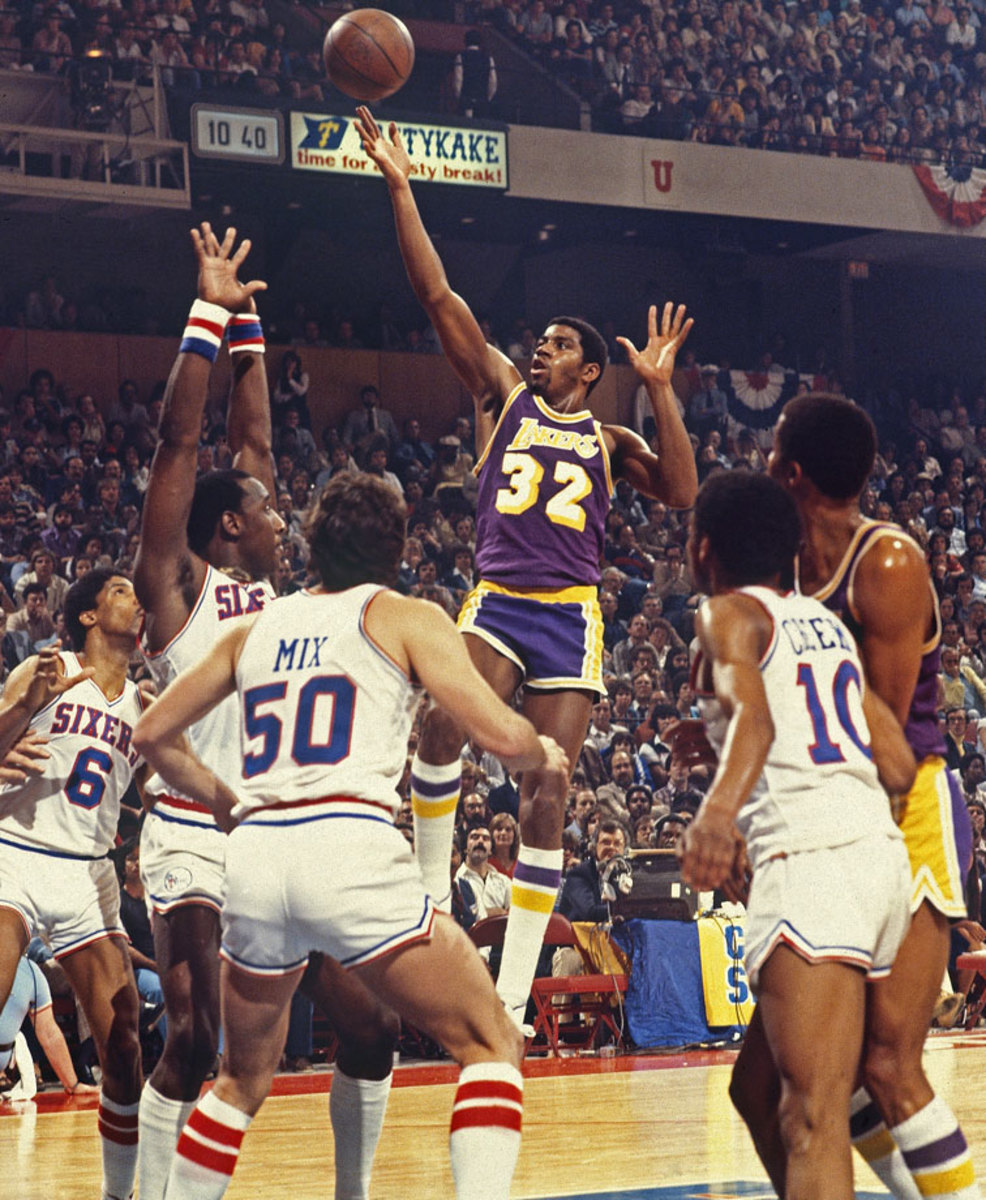
A difficult choice among other top picks — including Kareem Abdul-Jabbar, Shaquille O'Neal and Tim Duncan (Oscar Robertson was a territorial pick and LeBron James had a lot more time to improve his body of work and win titles) — but Magic not only won five championships but also rescued the NBA through his West-East rivalry with Larry Bird. He recast the league as an entertainment company led by likable stars. Would the NBA ever have become so popular without him?
No. 2: Bill Russell, St. Louis Hawks (1956)
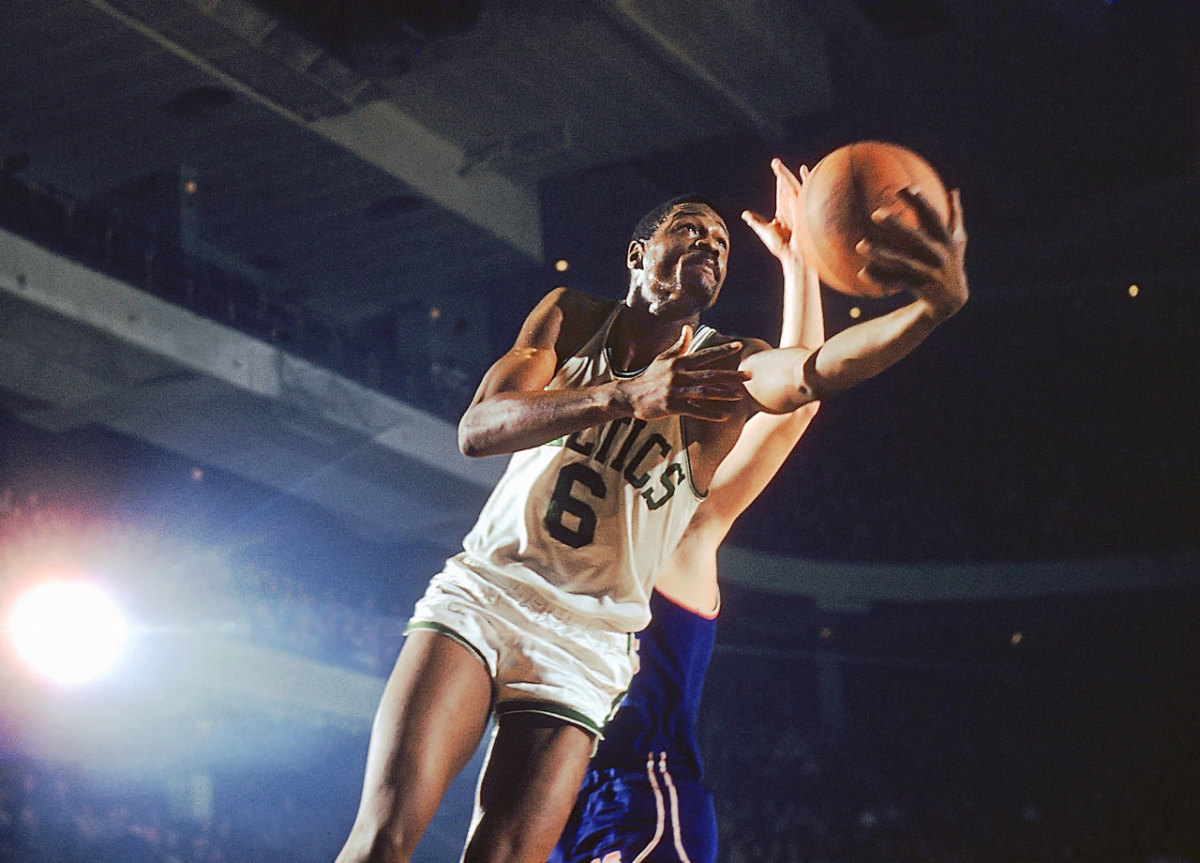
In my book, Russell is the most important draft pick in league history because he instituted the team-first leadership skills that defined success in the NBA and were emulated by Michael Jordan and many other stars thereafter. Because of this pick — acquired by Red Auerbach in a bold trade that sent All-Stars Ed Macauley and Cliff Hagan to the St. Louis Hawks — the Celtics became the most dominant team in sports history, winning 11 of 13 championships around Russell's unprecedented defensive dominance.
No. 3: Michael Jordan, Chicago Bulls (1984)
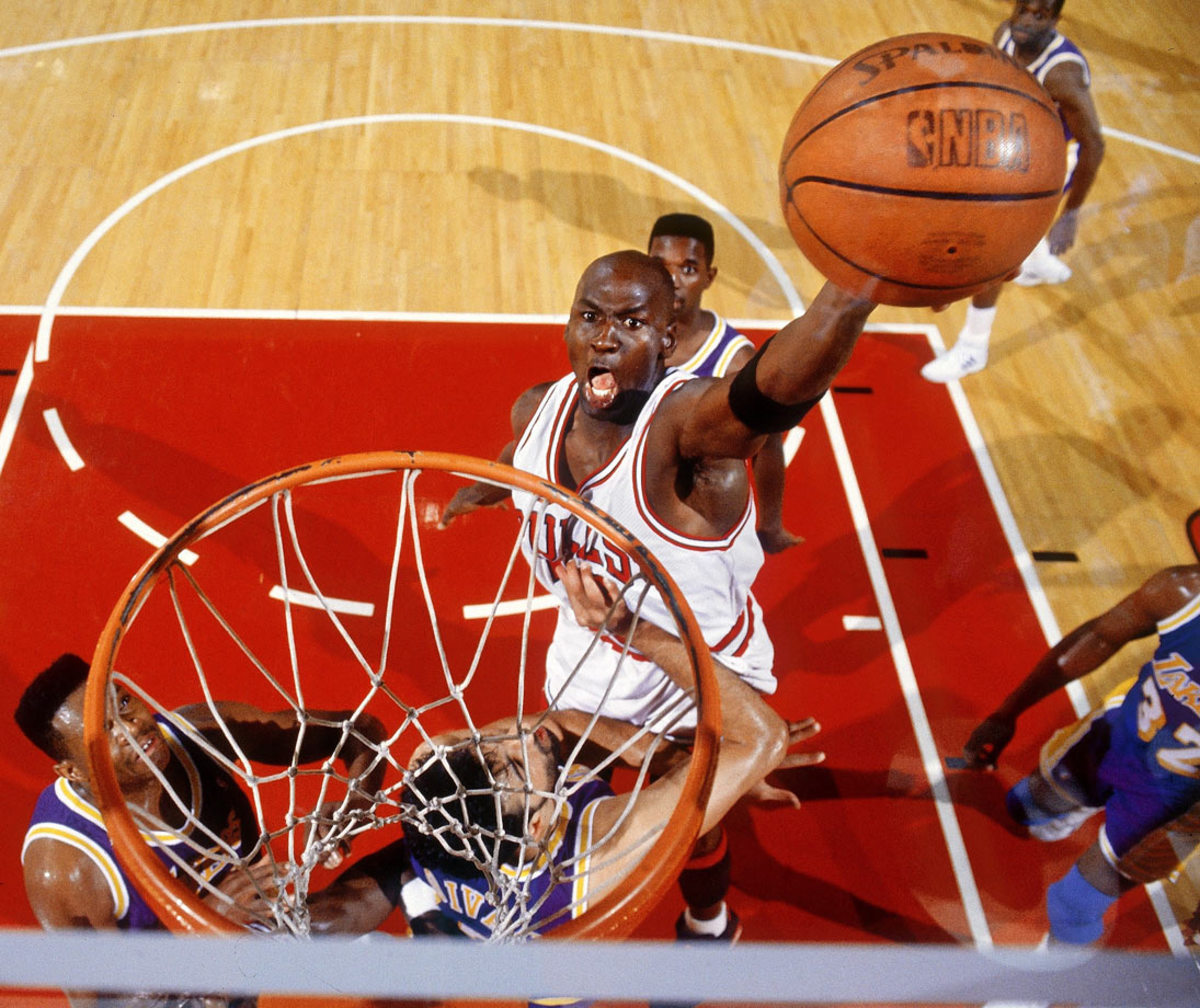
It continues to defy reason that the Trail Blazers passed on Jordan to take center Sam Bowie with the No. 2 pick. (The Rockets used the No. 1 pick on Hakeem Olajuwon, an acceptable decision as he would deliver two championships to Houston.) Jordan became the greatest player of the modern era, and the only basketball player ever to be acknowledged as the most popular athlete in the world.
No. 4: Dave Cowens, Boston Celtics (1970)
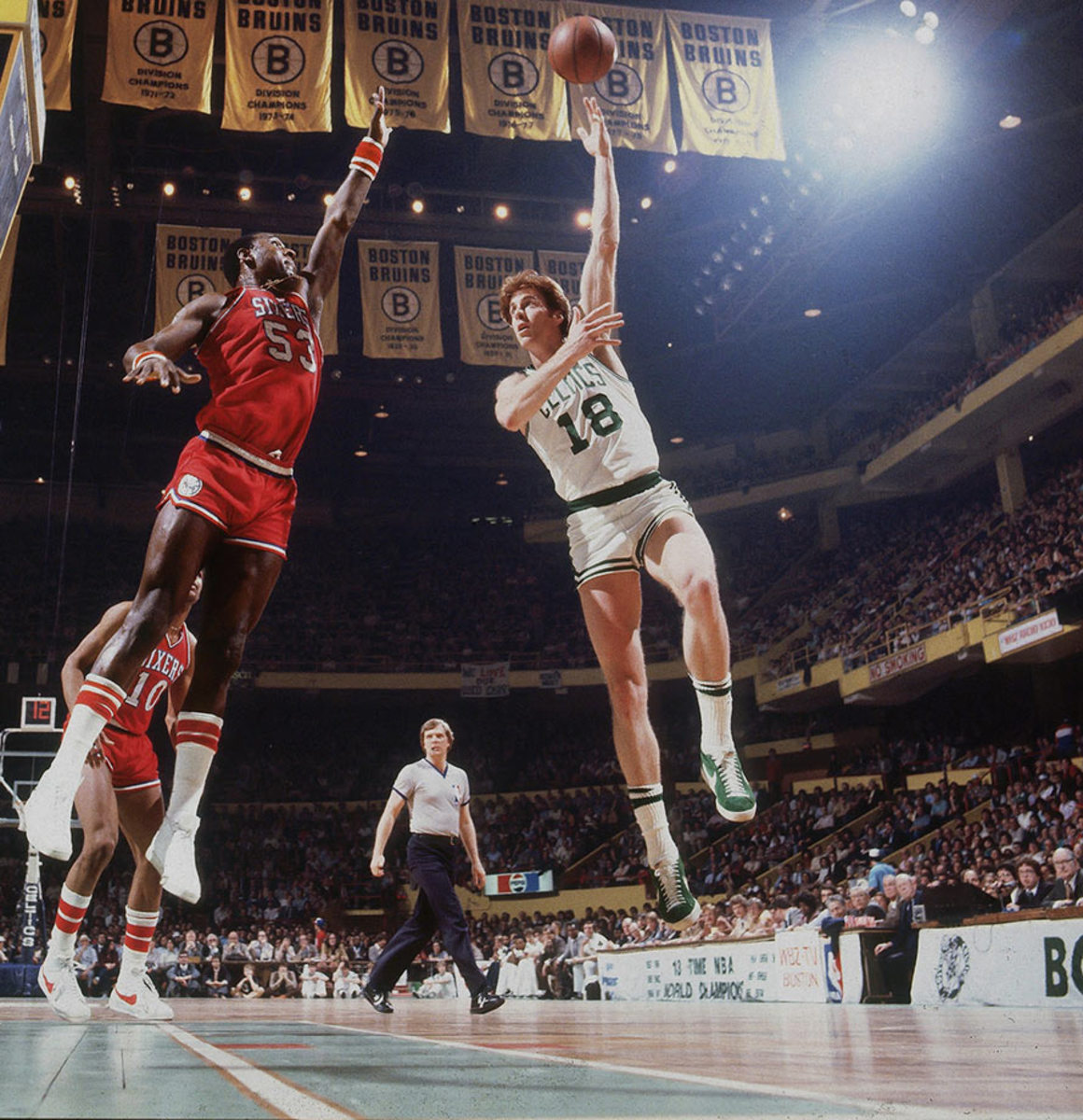
The 6-foot-9 Hall of Famer was an undersized center who won all of the meaningful awards (co-Rookie of the Year, MVP, All-NBA and All-Defensive first team) as well as leading Boston to two championships as Russell's unlikely successor.
No. 5: Kevin Garnett, Minnesota Timberwolves (1995)
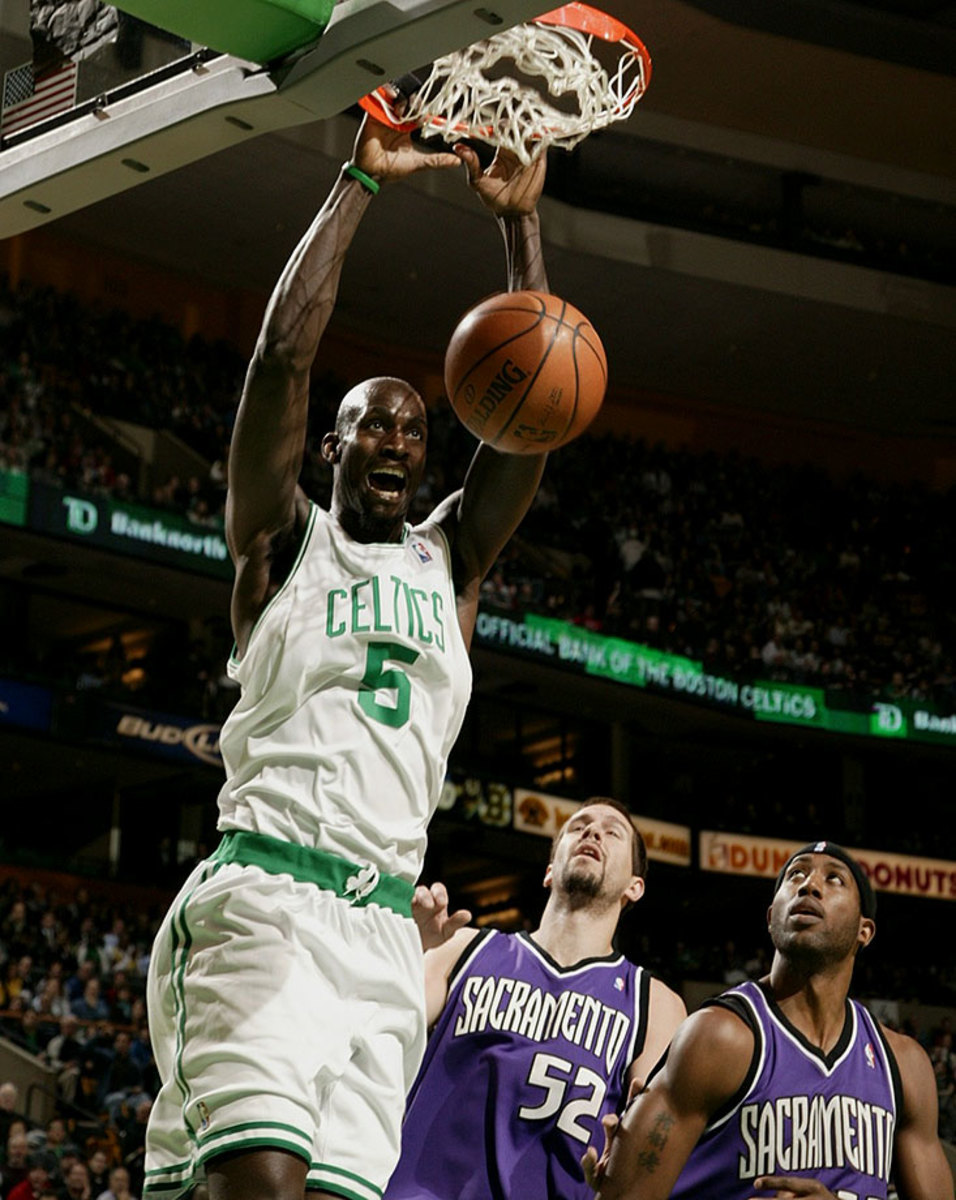
Minnesota took an enormous risk in picking Garnett so high — players without college experience being unproven products in '95 — and he turned into one of the most influential big men of his era. Scottie Pippen, Dwyane Wade, Walt Frazier, Charles Barkley and Ray Allen were also No. 5 picks, but Garnett's dominance in virtually all phases of the game sets the standard here.
No. 6: Larry Bird, Boston Celtics (1978)
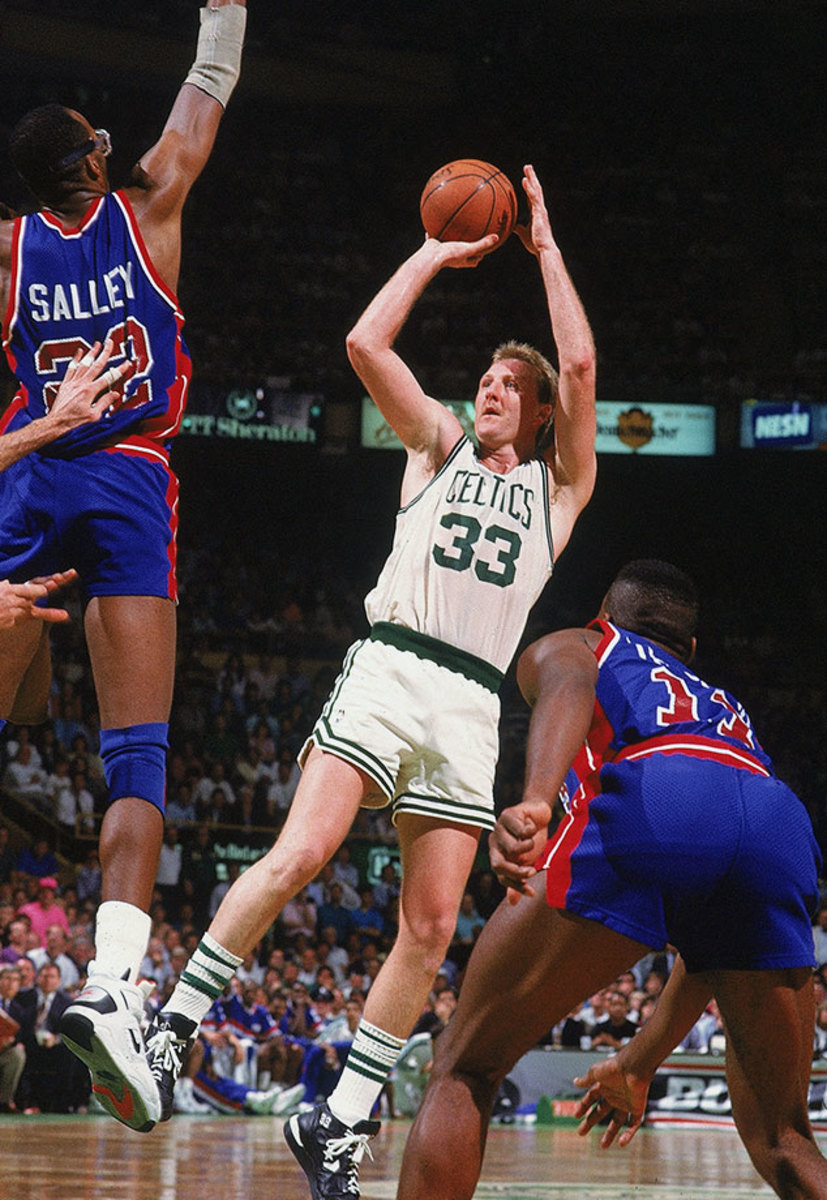
So valuable was Bird that Auerbach drafted him before his final season at Indiana State, exploiting a loophole that has since been closed. When Bird showed up in Boston one year later, he proved that he was worth the wait.
No. 7: John Havlicek, Boston Celtics (1962)
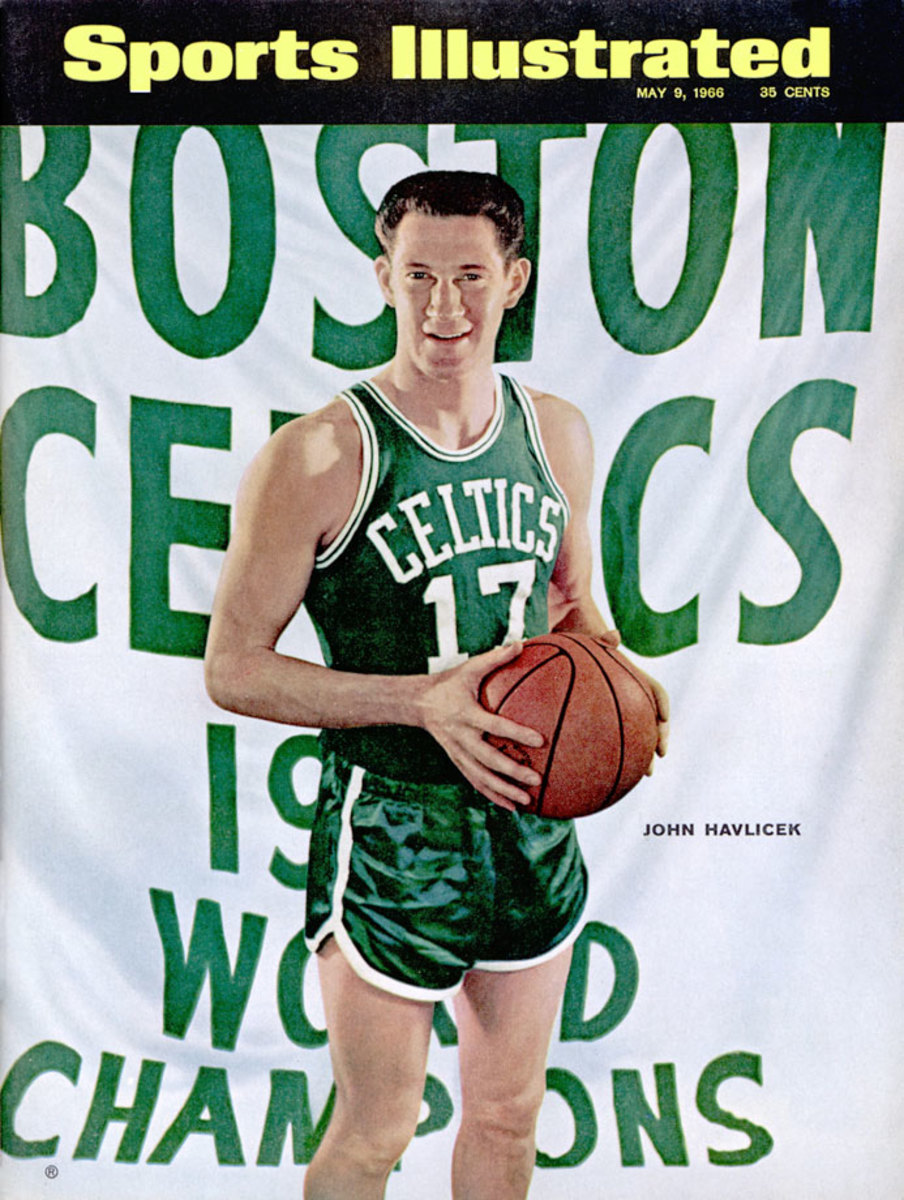
Manu Ginobili is his era's version of Hondo — a versatile, high-energy swingman so selfless that he doesn't care whether he starts or comes off the bench. Havlicek retired in 1978 with eight championships and he remains the leading scorer in Celtics history.
No. 8: Sam Jones, Boston Celtics (1957)
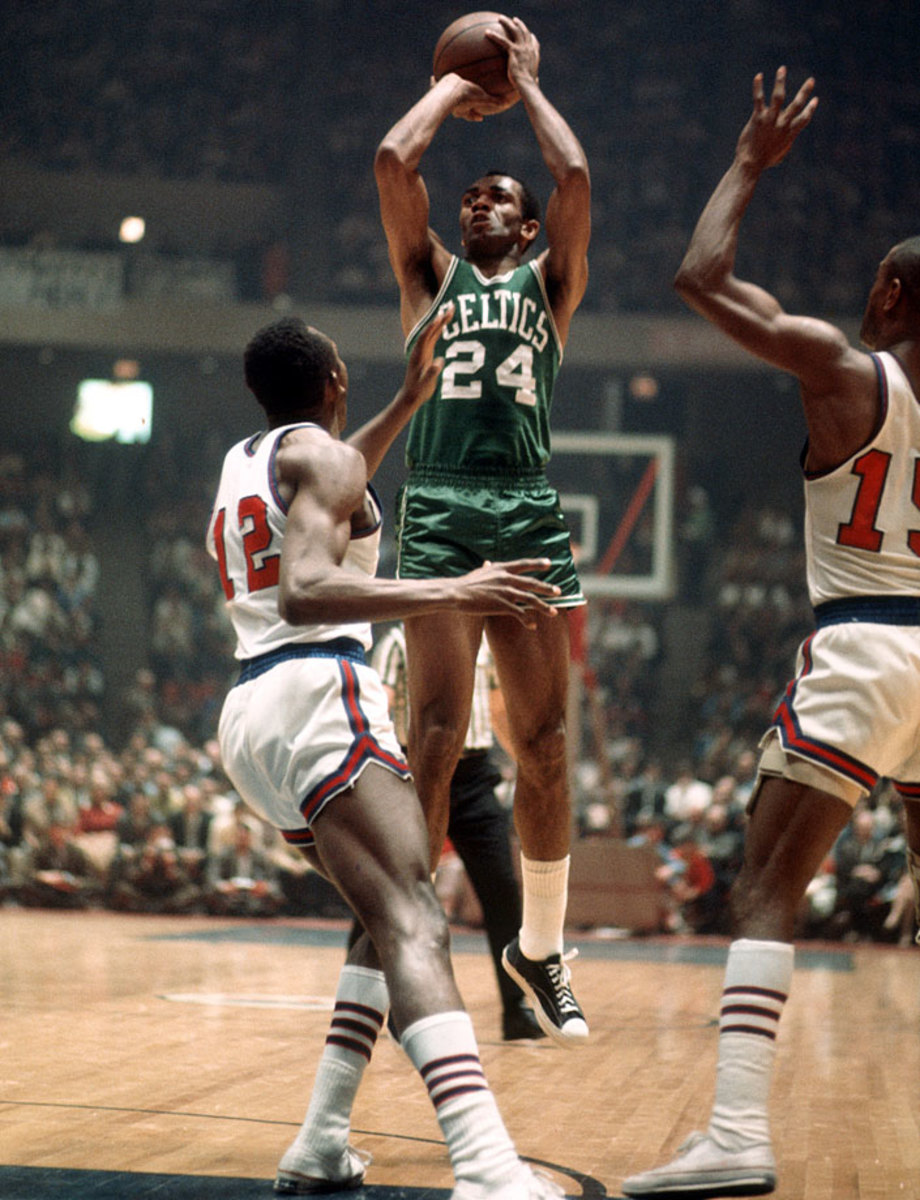
Originally chosen by the Minneapolis Lakers a year earlier, the 6-4 Jones reentered the draft after military service and became the Celtics' version of Mr. Clutch, hitting huge playoff shots in a 12-year career that included 10 NBA championships. 19 years after Jones' selection, the Warriors turned the No. 8 pick into Robert Parish, who also helped deliver championships to Boston.
No. 9: Dirk Nowitzki, Milwaukee Bucks (1998)
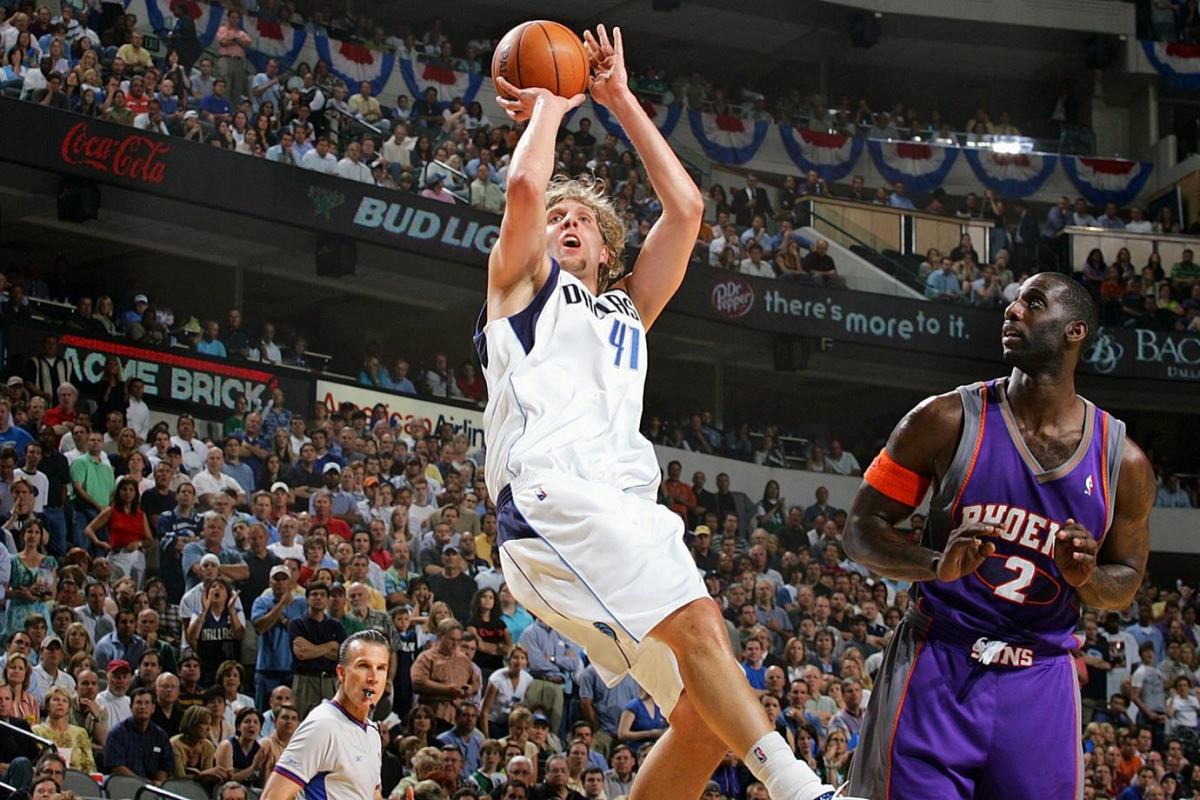
In a prearranged draft-night trade that turned into one of the most lopsided deals in history, the Mavericks sent No. 6 pick Robert Traylor to the Bucks for Nowitzki and rookie Pat Garrity, whom Dallas dealt to Phoenix for Steve Nash. Nowitzki's three-point shooting as a 7-footer transformed the NBA's view of the power forward position. He led the Mavericks to the 2006 NBA Finals and was named league MVP a year later.
No. 10: Paul Pierce, Boston Celtics (1998)
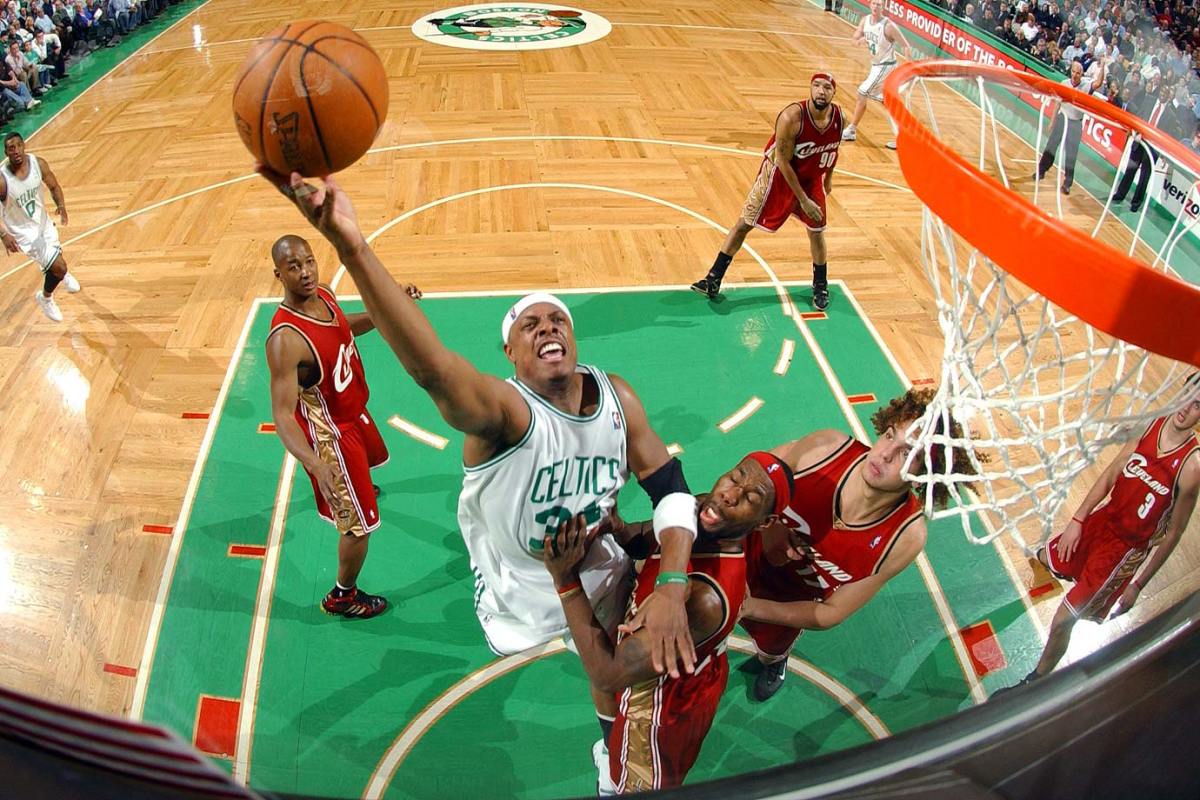
Viewed as a potential top-three pick, Pierce slid to No. 10. He was on the verge of requesting a trade when the Celtics acquired Kevin Garnett and Ray Allen to help Pierce win the 2008 championship. He is Boston's No. 2 all-time scorer, between Havlicek and Bird.
No. 11: Reggie Miller, Indiana Pacers (1987)
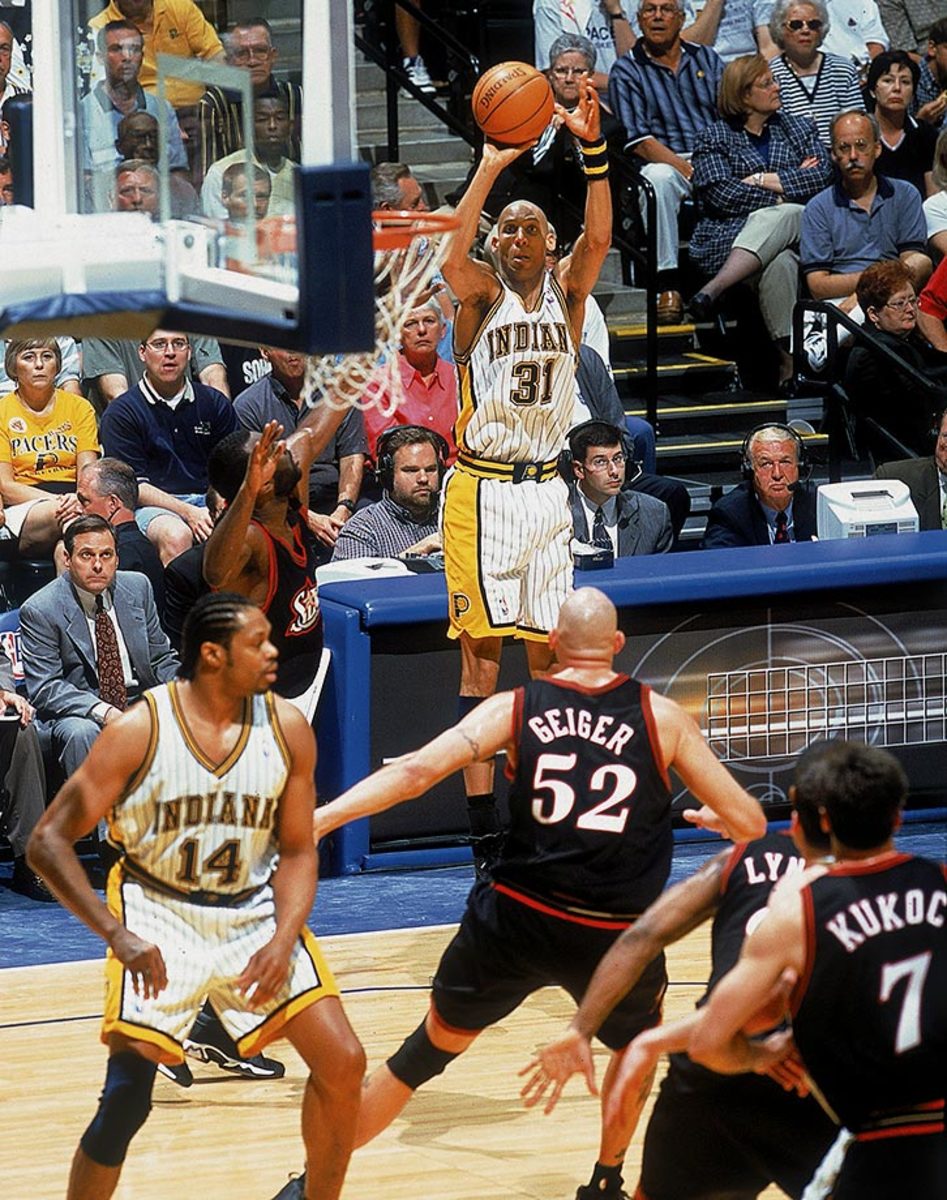
This has been a good slot in which to acquire shooting: Allan Houston, Robert Horry and Kiki Vandeweghe were all No. 11 picks, as was Jamaal Wilkes. But none made a bigger impact on the team that drafted him than Miller, a clutch scorer who matured to set a standard of leadership for the Pacers.
No. 12: Julius Erving, Milwaukee Bucks (1972)
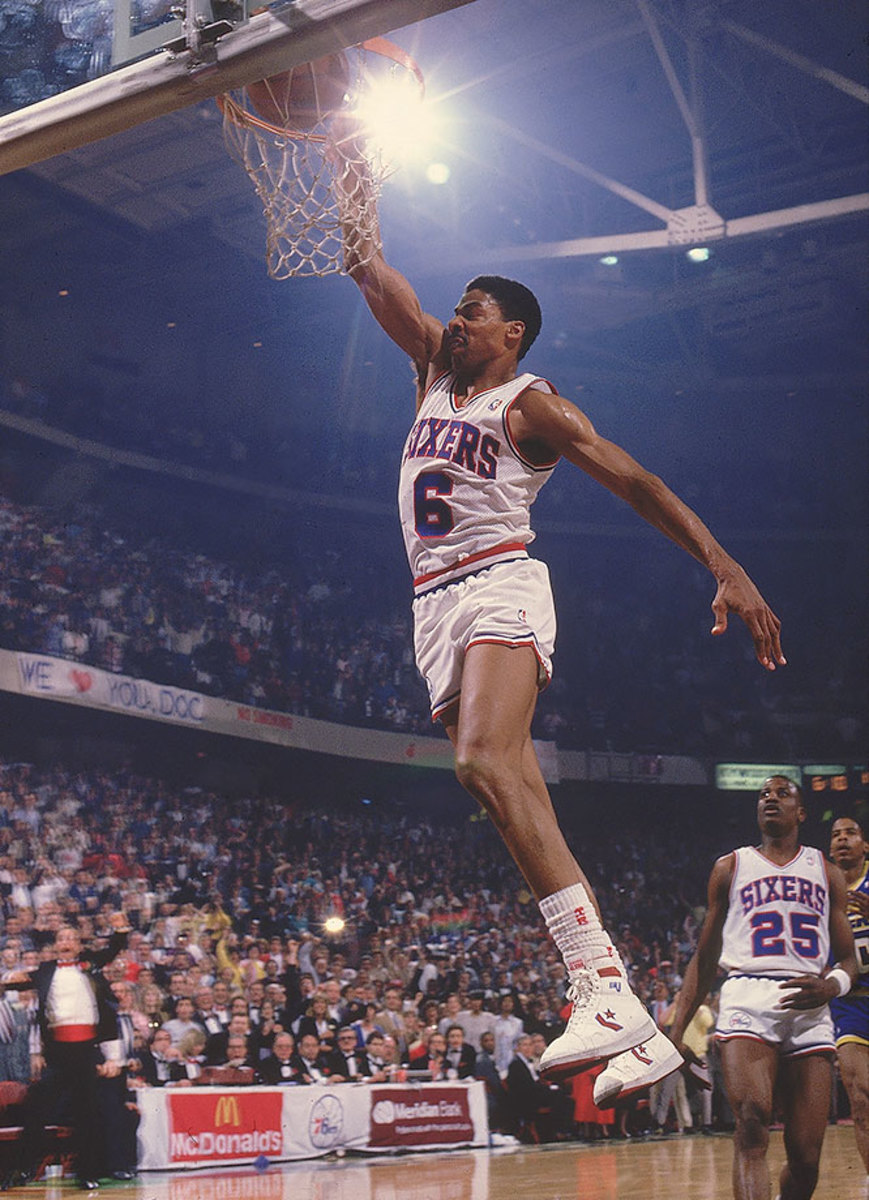
Had Erving signed with Milwaukee, he would have been teammates with Abdul-Jabbar and Robertson; instead, he moved to the ABA, where he won three MVPs and two championships in five seasons before a merger with the NBA shifted him to the 76ers at age 26. More than a creator of highlights, Erving won an MVP award and a championship in 11 years with Philadelphia. But his majestic finishing around the basket set a standard for athletic elegance that remains unmatched.
No. 13: Kobe Bryant, Charlotte Hornets (1996)
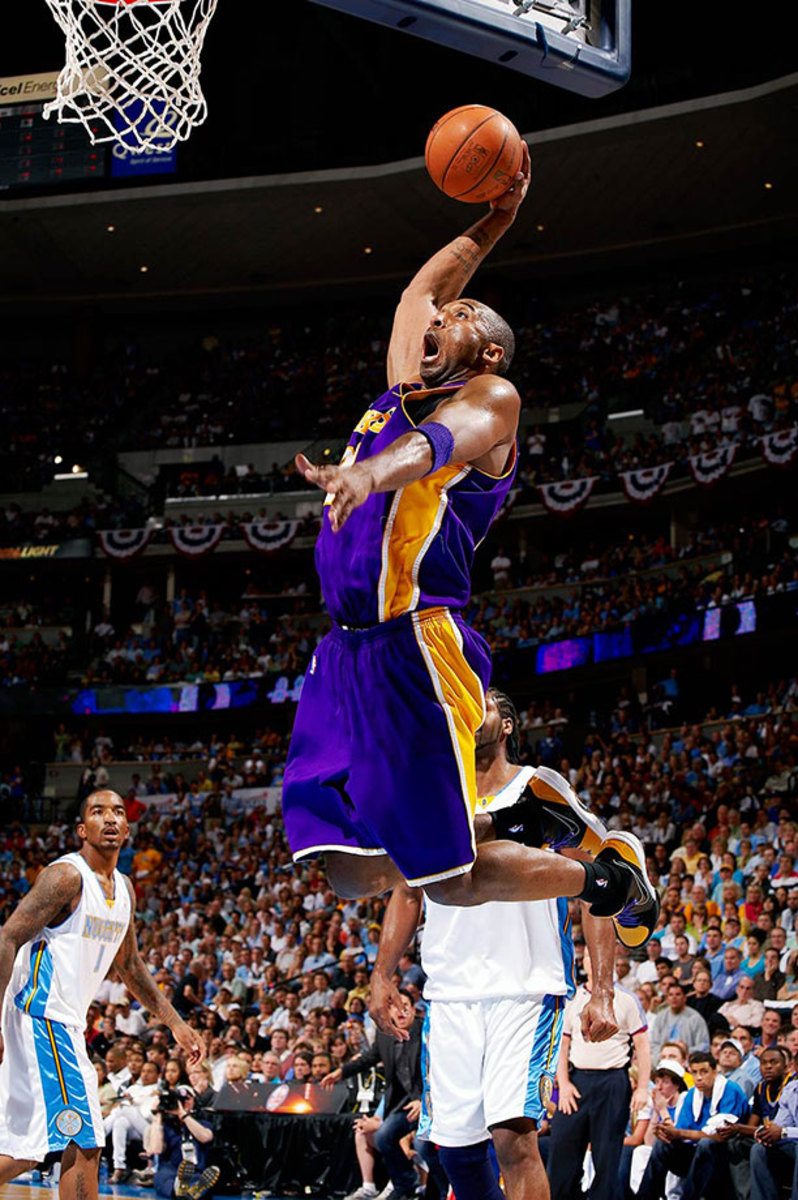
The Hornets took him for the Lakers, who traded Vlade Divac to Charlotte in a cap-clearing move that enabled them to sign Shaq that summer. Consider this to be a lucky place to find talent: In 1985, the Jazz drafted "undersized'' power forward Karl Malone at No. 13.
No. 14: Clyde Drexler, Portland Trail Blazers (1983)
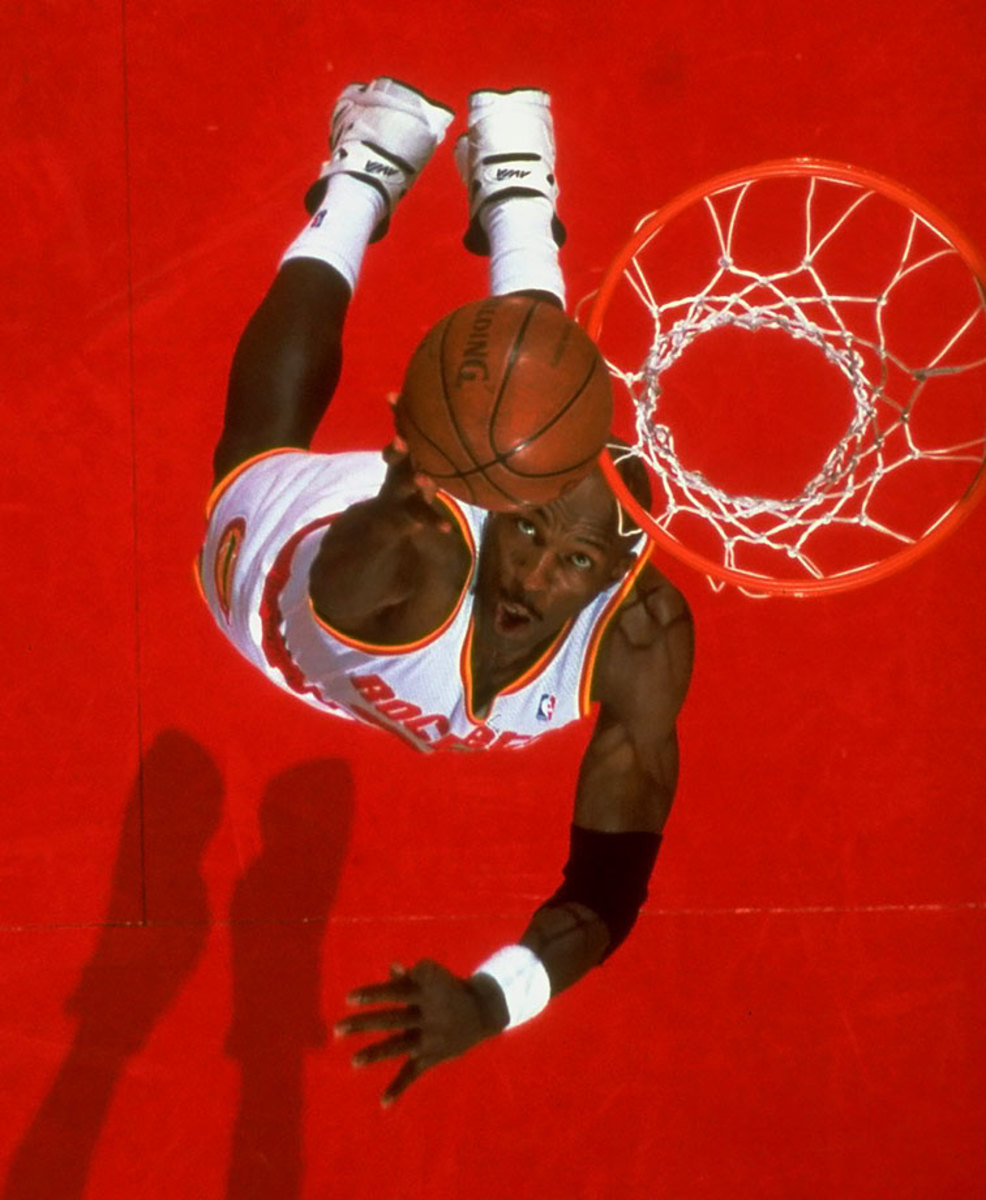
He turned out to be the best player in his draft. He lasted to this spot because his Phi Slamma Jamma years in college created the mistaken impression that he was a one-dimensional dunker, but he turned into a skilled and versatile Hall of Fame scorer who helped his former University of Houston teammate Olajuwon win a championship with the Rockets in 1995.
No. 15: Steve Nash, Phoenix Suns (1996)
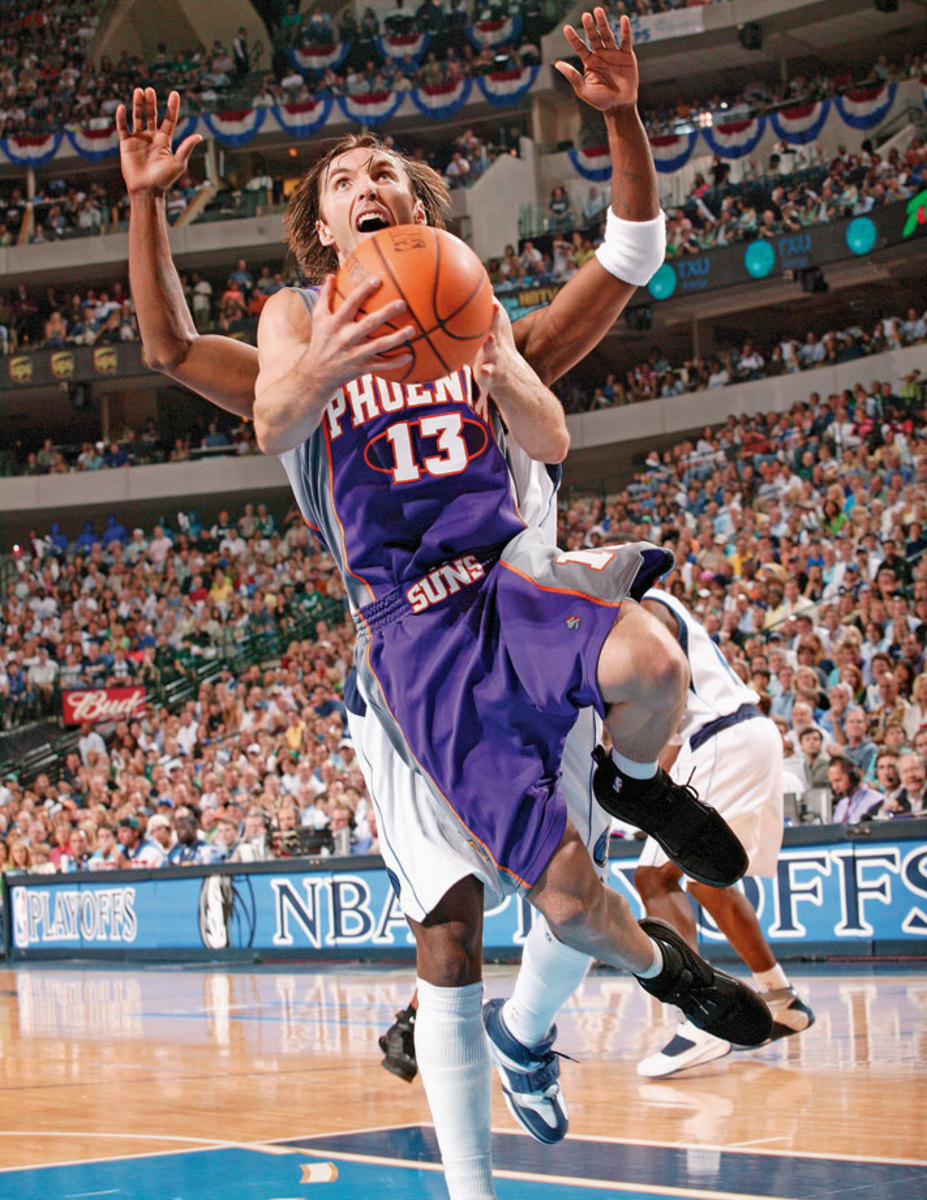
A self-made Canadian point guard with one NCAA scholarship offer (from Santa Clara), Nash began his pro career as the Suns' third-string point guard behind Jason Kidd and Kevin Johnson. Phoenix traded him in 1998 to Dallas, where he overcame a rough start to emerge as a star in his fifth NBA season. He then further surprised the Mavericks by blooming into a two-time league MVP after returning to the Suns as a free agent.
No. 16: John Stockton, Utah Jazz (1984)
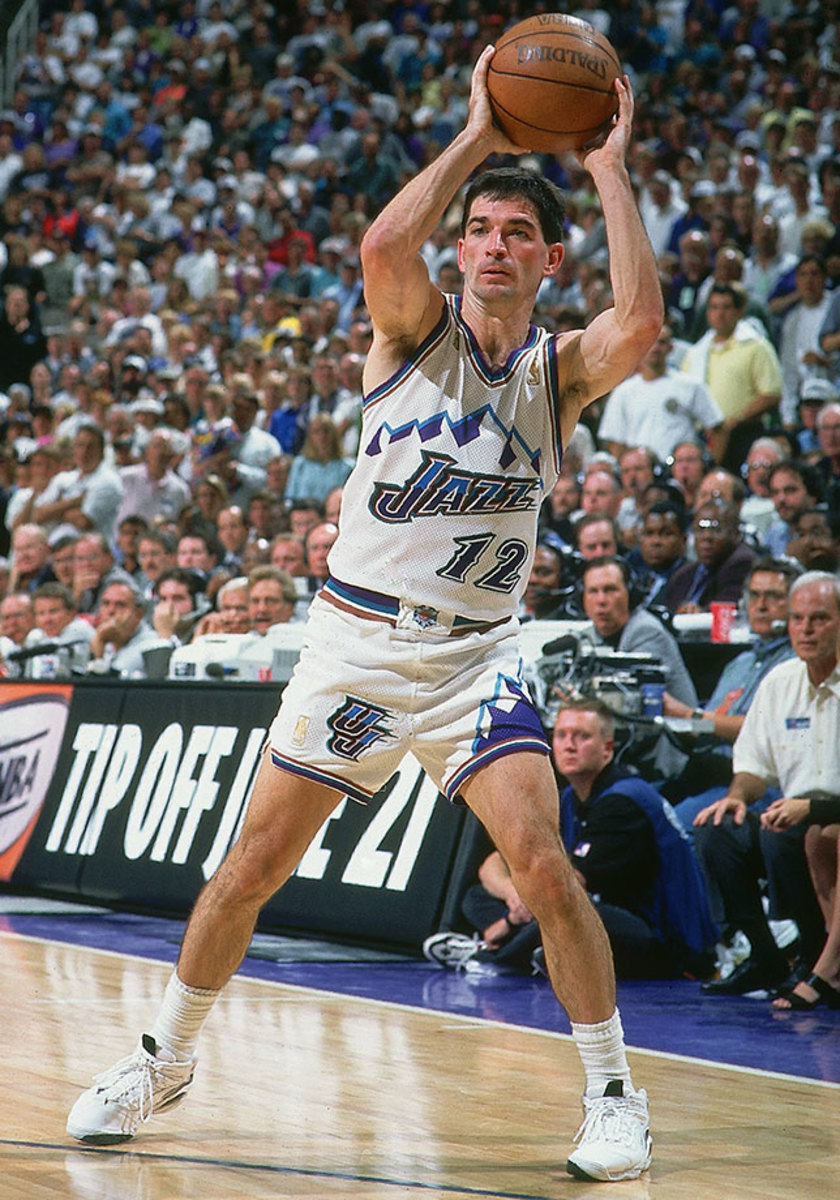
Picking up Stockton at No. 16 is like the 49ers discovering Joe Montana in Round 3 of the NFL draft. Ron Artest has been the next best player from this slot.
No. 17: Shawn Kemp, Seattle SuperSonics (1989)
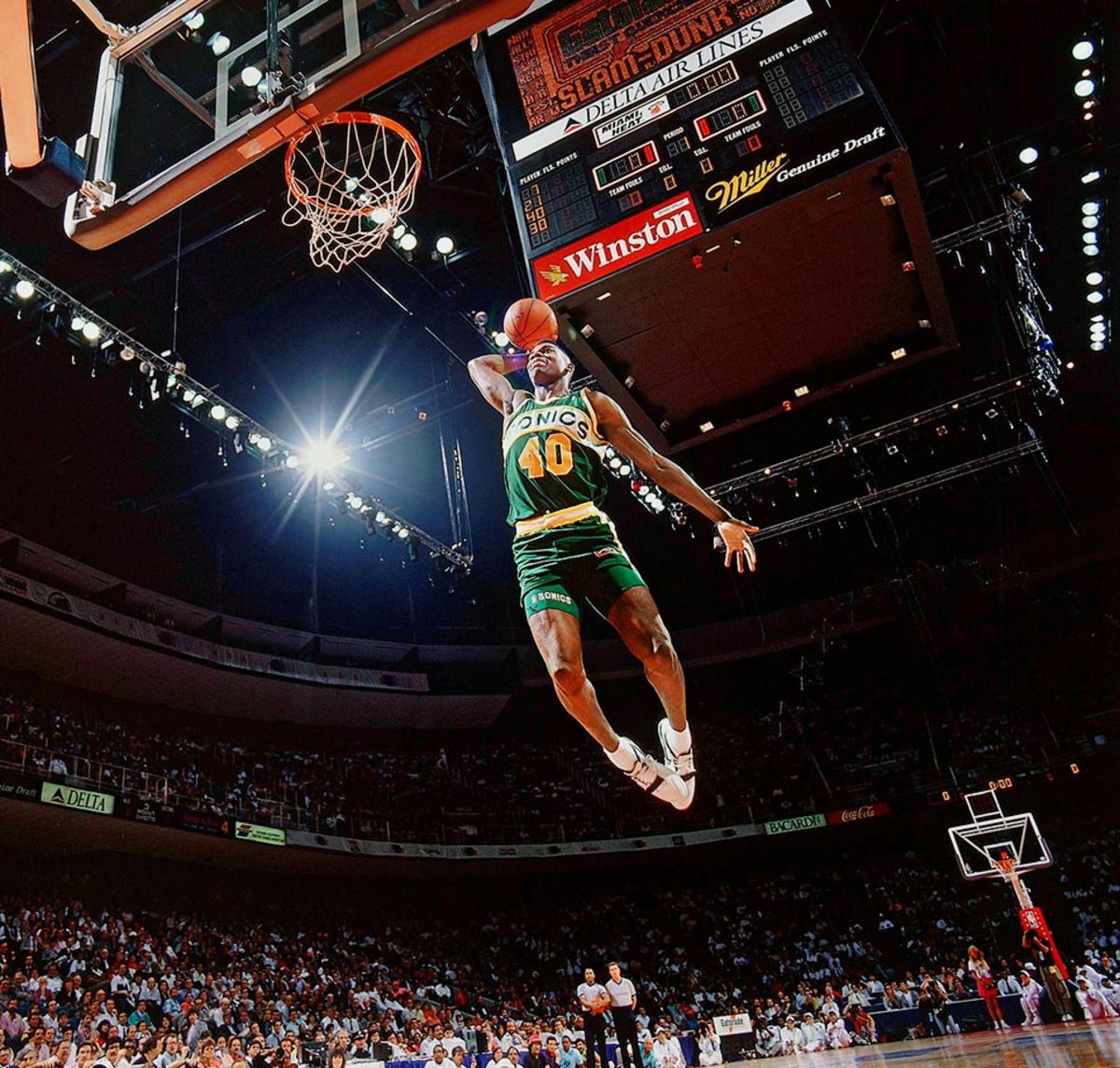
Entering the NBA as the youngest player in the league, the 6-10 Kemp turned into a six-time All-Star who joined with guard Gary Payton to lead Seattle to the 1996 Finals. He averaged 16.8 points and 9.5 rebounds over his 11-year career.
No. 18: Joe Dumars, Detroit Pistons (1985)
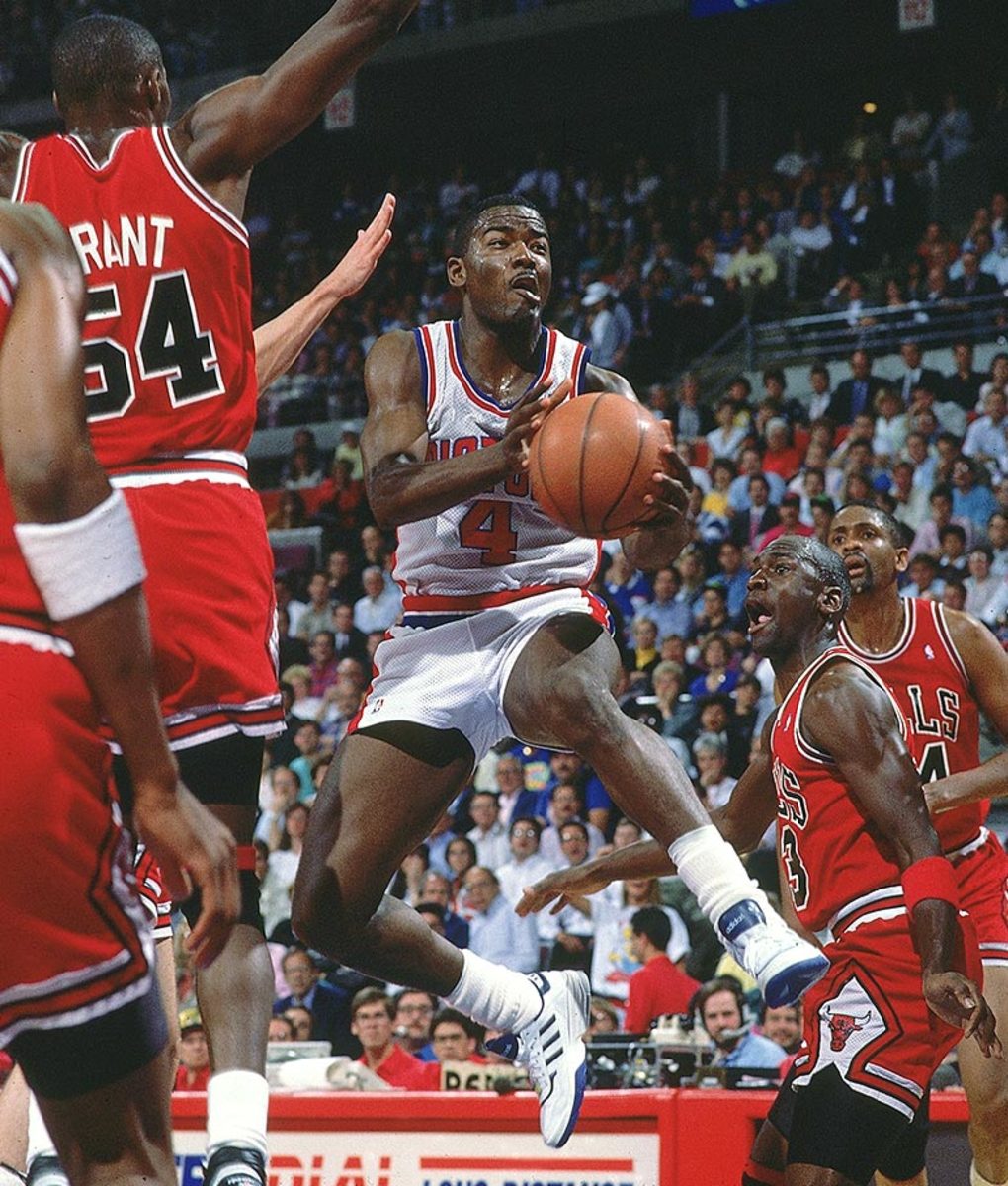
A complement to Isiah Thomas, the Hall of Fame guard helped the Pistons earn two championships (as well as another one two decades later as the team president). Calvin Murphy, Mark Jackson and David West were other surprisingly outstanding picks here.
No. 19: Tiny Archibald, Cincinnati Royals (1970)
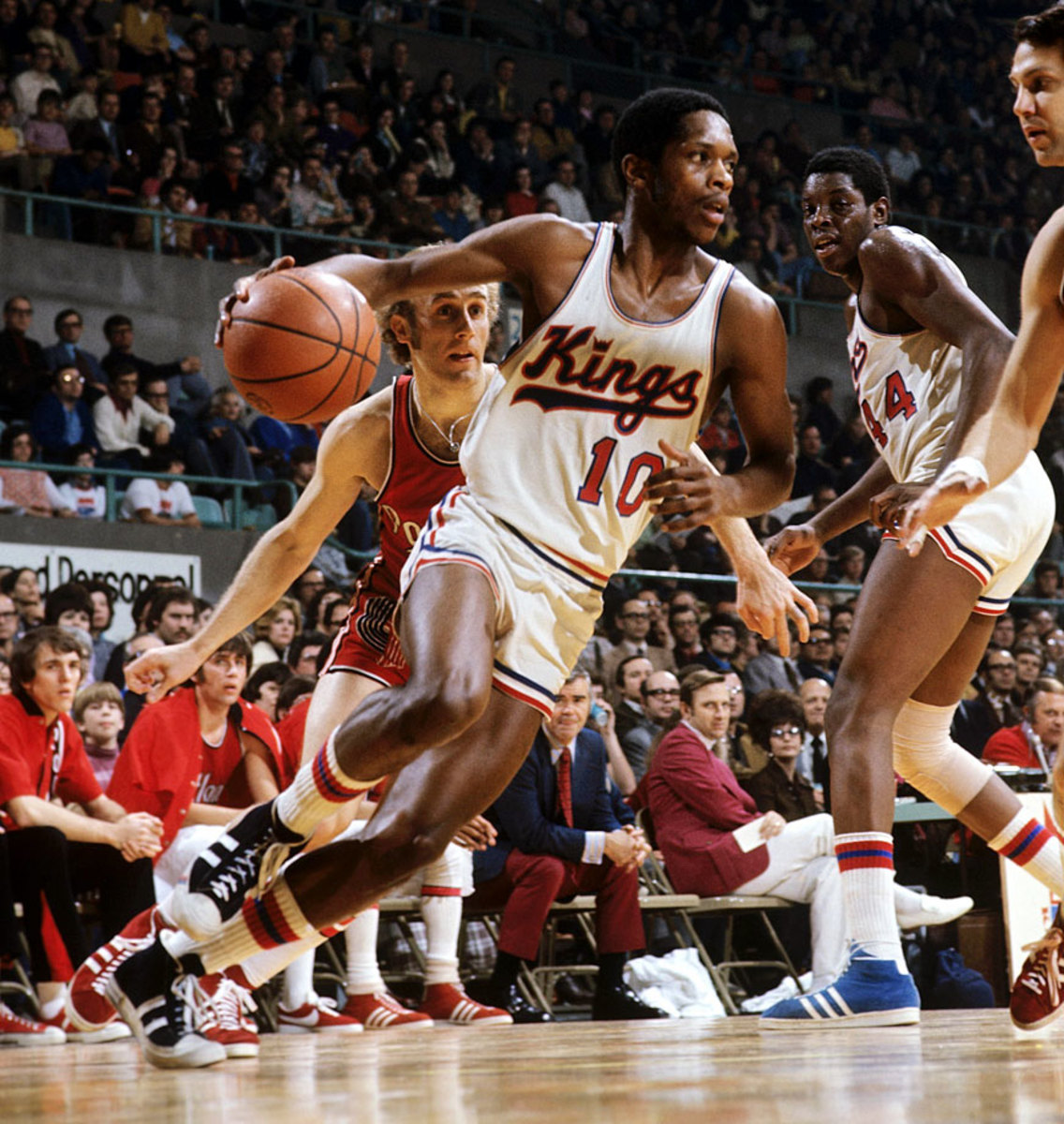
A small guard who could weave his way through any defense, the Hall of Famer led the NBA in scoring (34.0) and assists (11.4) in 1972-73, the only player to win both categories in the same season in league history. Rod Strickland (No. 8 on all-time assists list) and Bulls champion John Paxson also were picked here.
No. 20: Gus Williams, Golden State Warriors (1975)
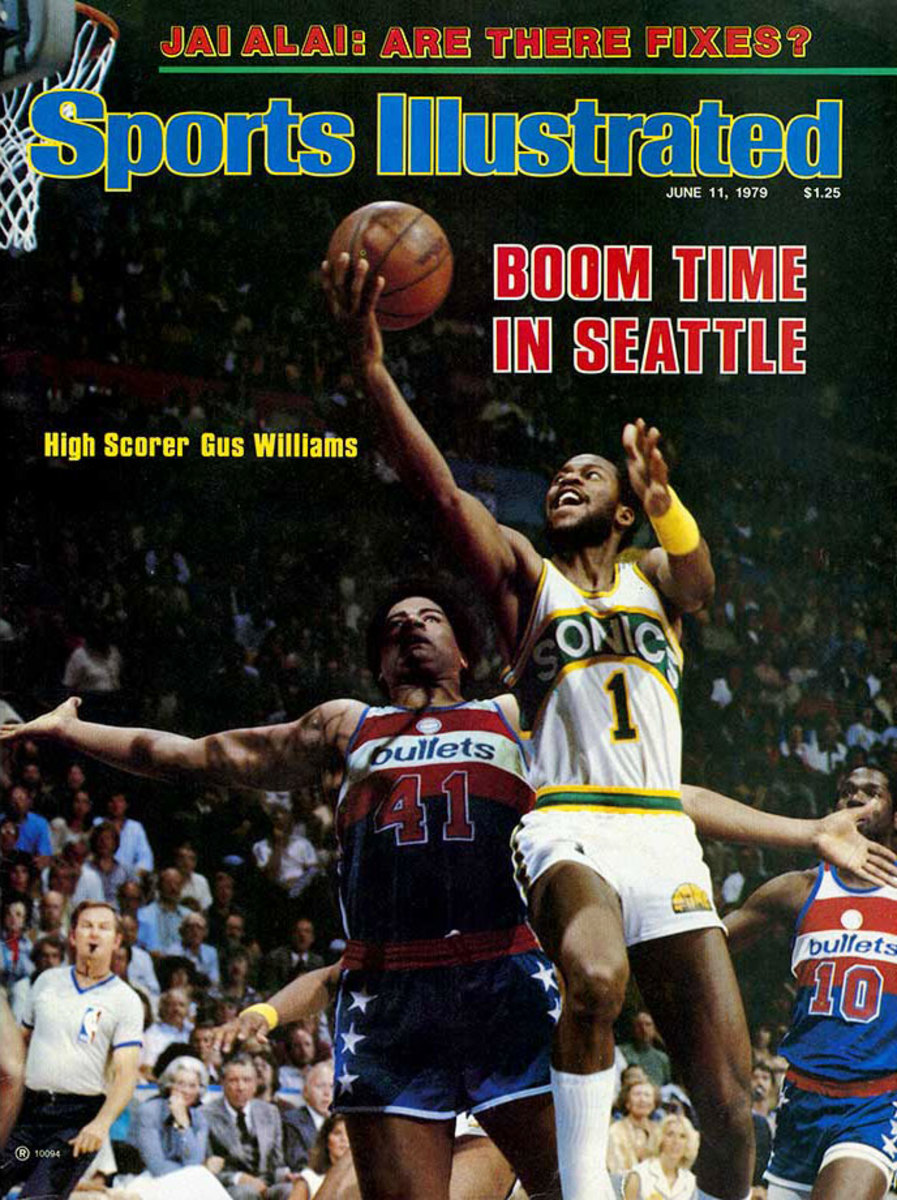
The two-time All-NBA guard averaged 17.1 ppg in 12 seasons, including six defining years with the Sonics, whom he led to the 1979 championship while averaging 28.6 points in the Finals.
No. 21: Michael Finley, Phoenix Suns (1995)
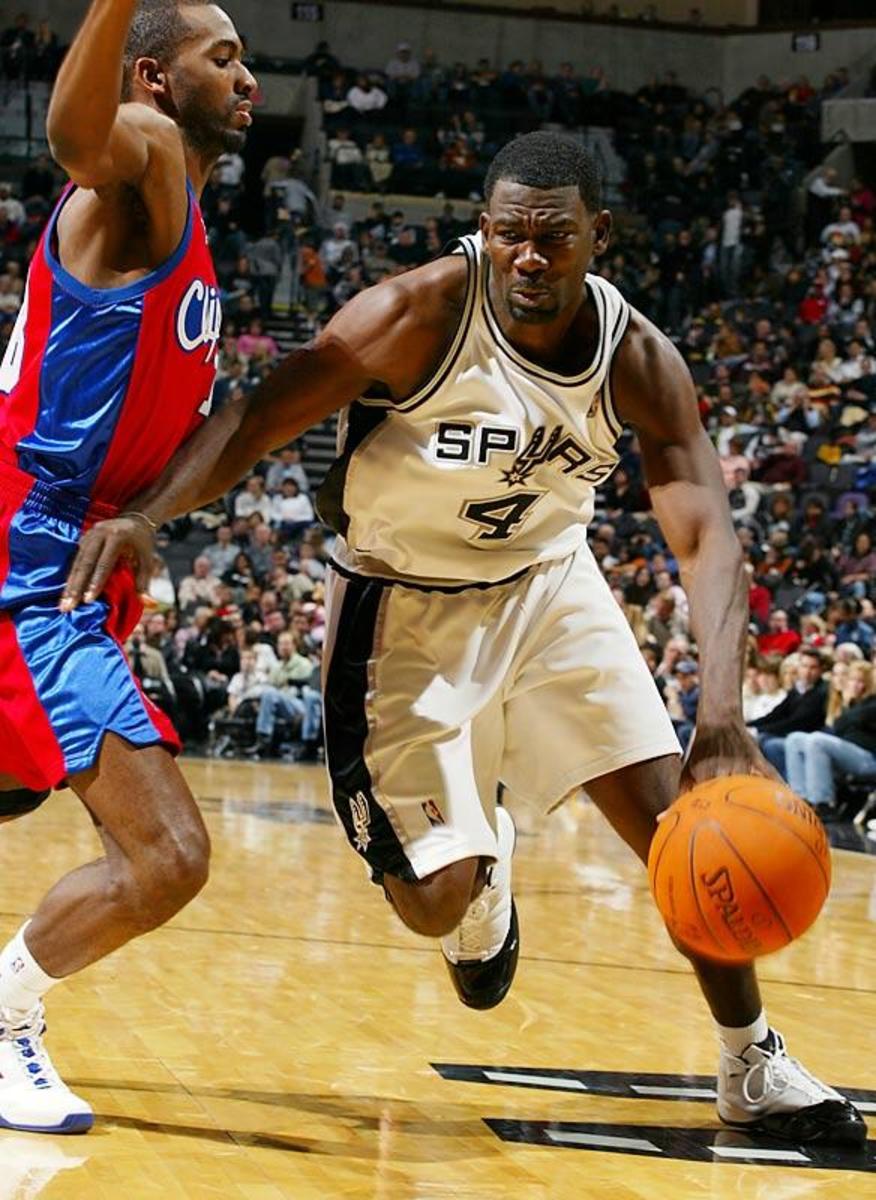
Rajon Rondo, drafted 21st in 2006, may be viewed as the best pick at this spot someday. For now, the choice is Finley, who turned into one of the league's elite scorers after being traded to Dallas, and later became a champion with the Spurs.
No. 22: Reggie Lewis, Boston Celtics (1987)
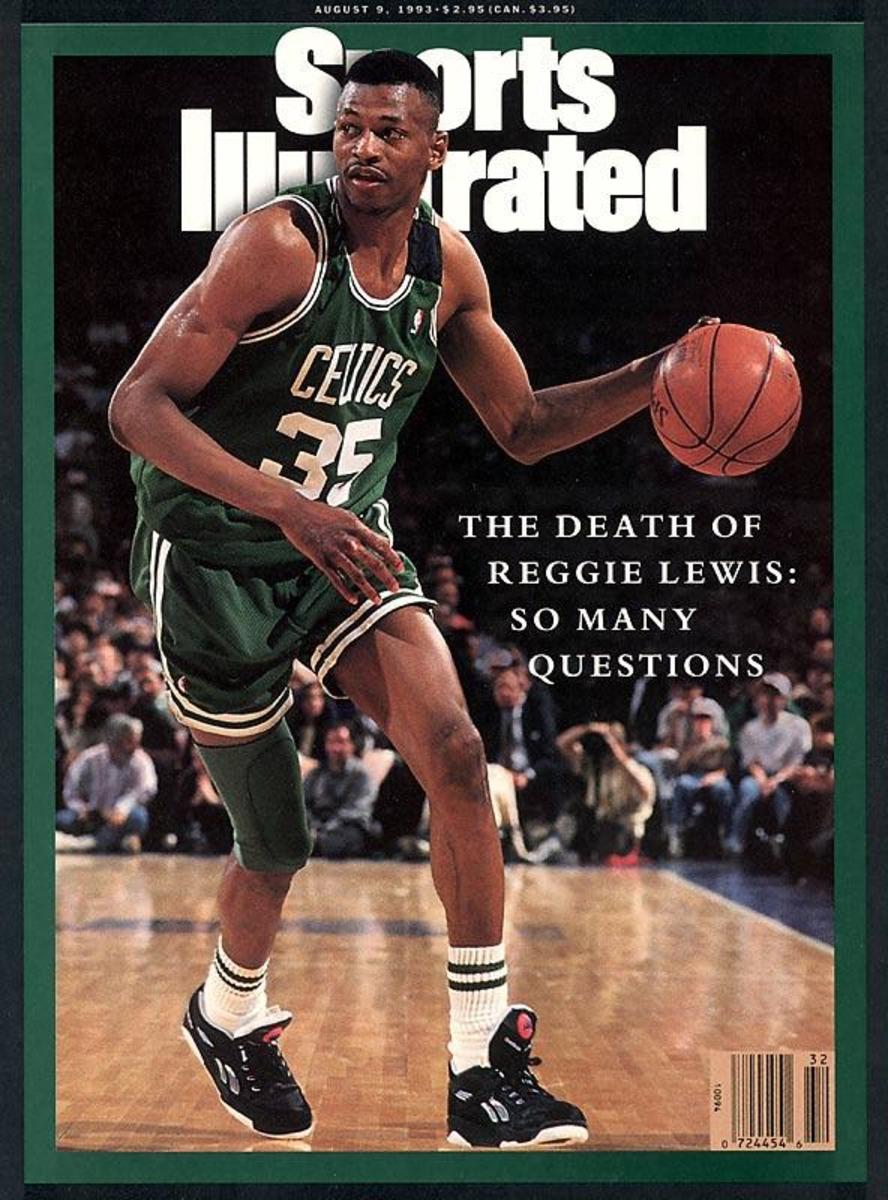
George McGinnis and Norm Nixon were fine choices here as well, but Lewis — a sixth man on his high school team — would have made multiple All-Star teams if not for the heart condition that killed him at age 27.
No. 23: Alex English, Milwaukee Bucks (1976)
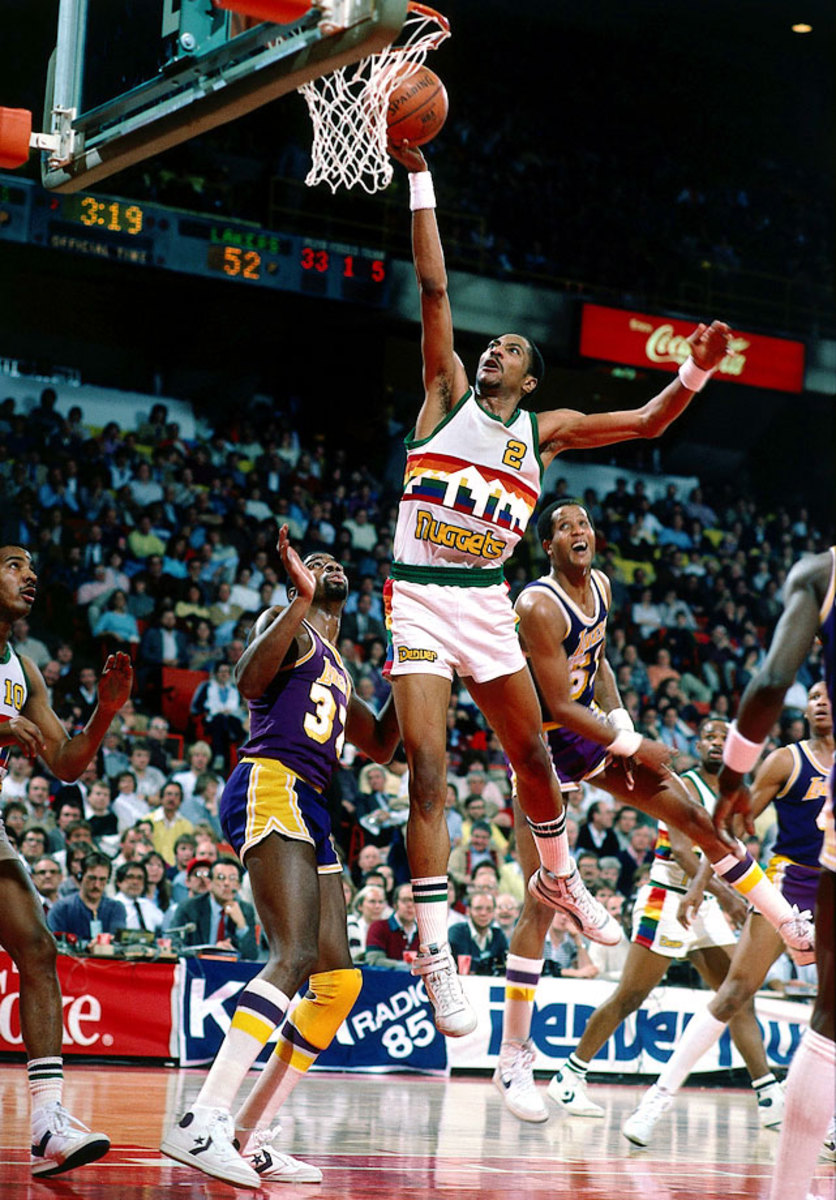
After three-plus middling seasons with Milwaukee and Indiana, the second-round pick (the NBA had fewer teams then) found his niche with the score-first Nuggets. When he retired in 1991, the future Hall of Famer was the NBA's No. 6 all-time scorer.
No. 24: Sam Cassell, Houston Rockets (1993)
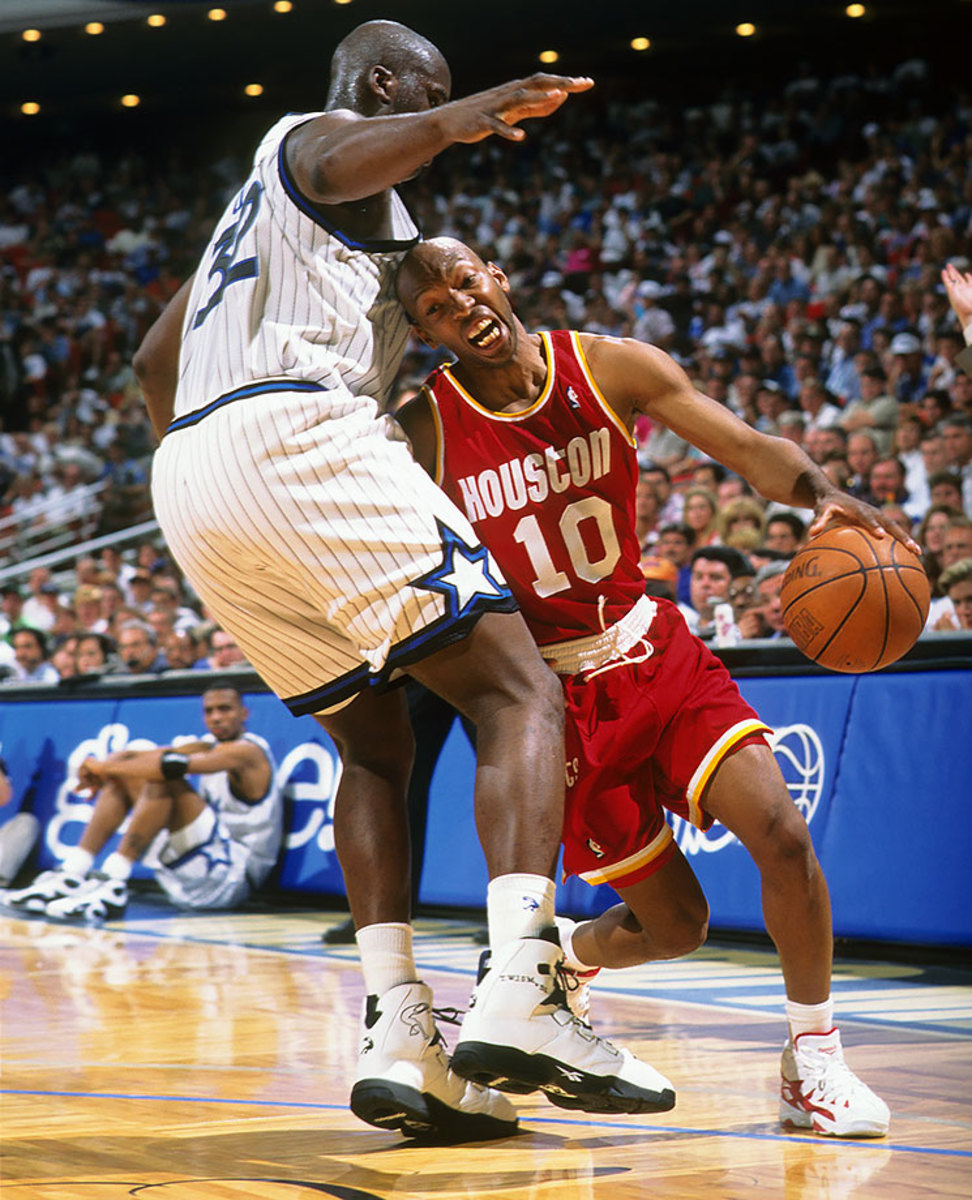
Talk about a steal: As a late-pick rookie, Cassell helped lead the Rockets to their first NBA championship. It was no fluke, as his 16-year career would attest. A lot of long-term value has been unearthed at No. 24, including Arvydas Sabonis, Andrei Kirilenko and Latrell Sprewell, as well as Lakers champions Rick Fox, Brian Shaw and Derek Fisher.
No. 25: Mark Price, Dallas Mavericks (1986)
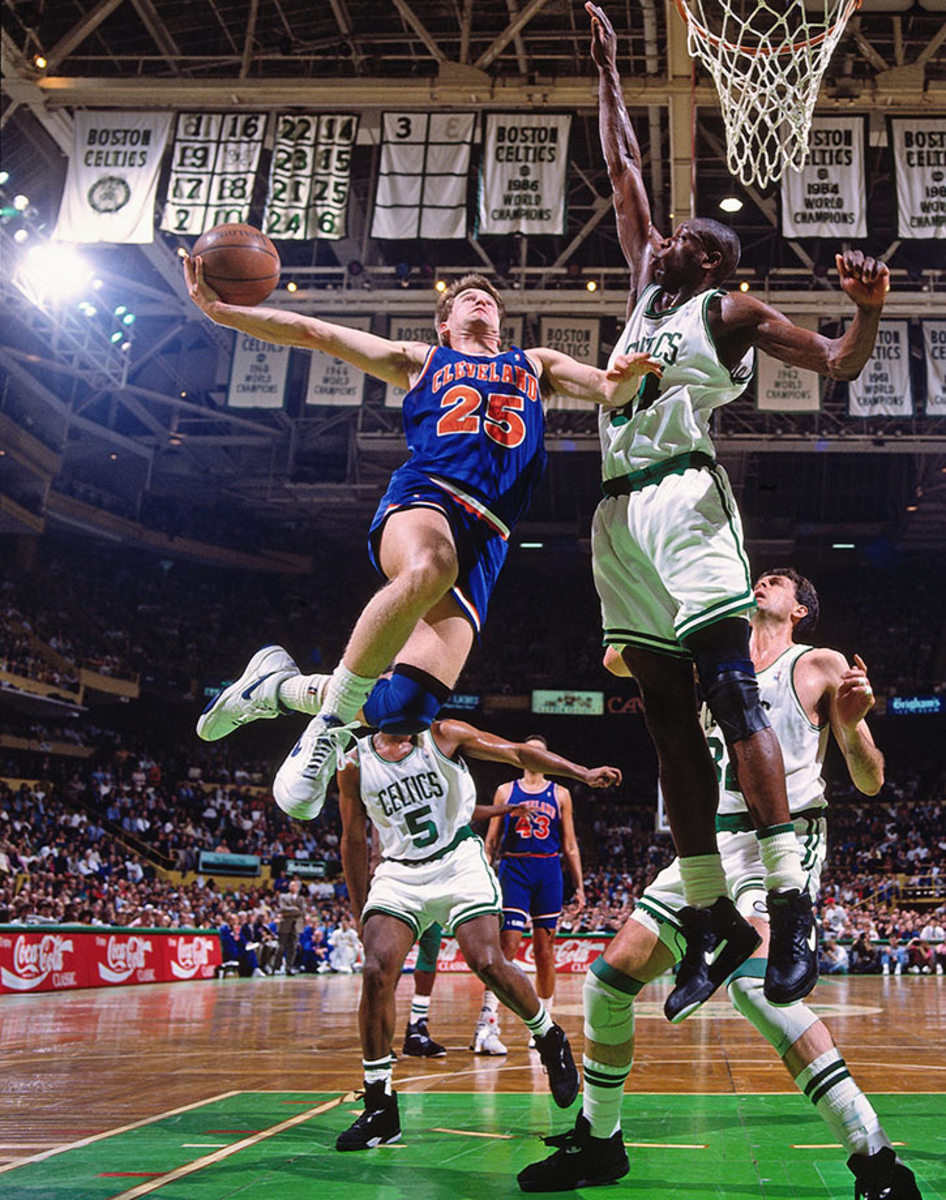
He was the face of the Cavaliers for a decade as well as a surprisingly effective shooter for his size. Price edges out John Drew, Gerald Wallace and Bob Gross, the small forward on Portland's 1977 championship team.
No. 26: Vlade Divac, Los Angeles Lakers (1989)
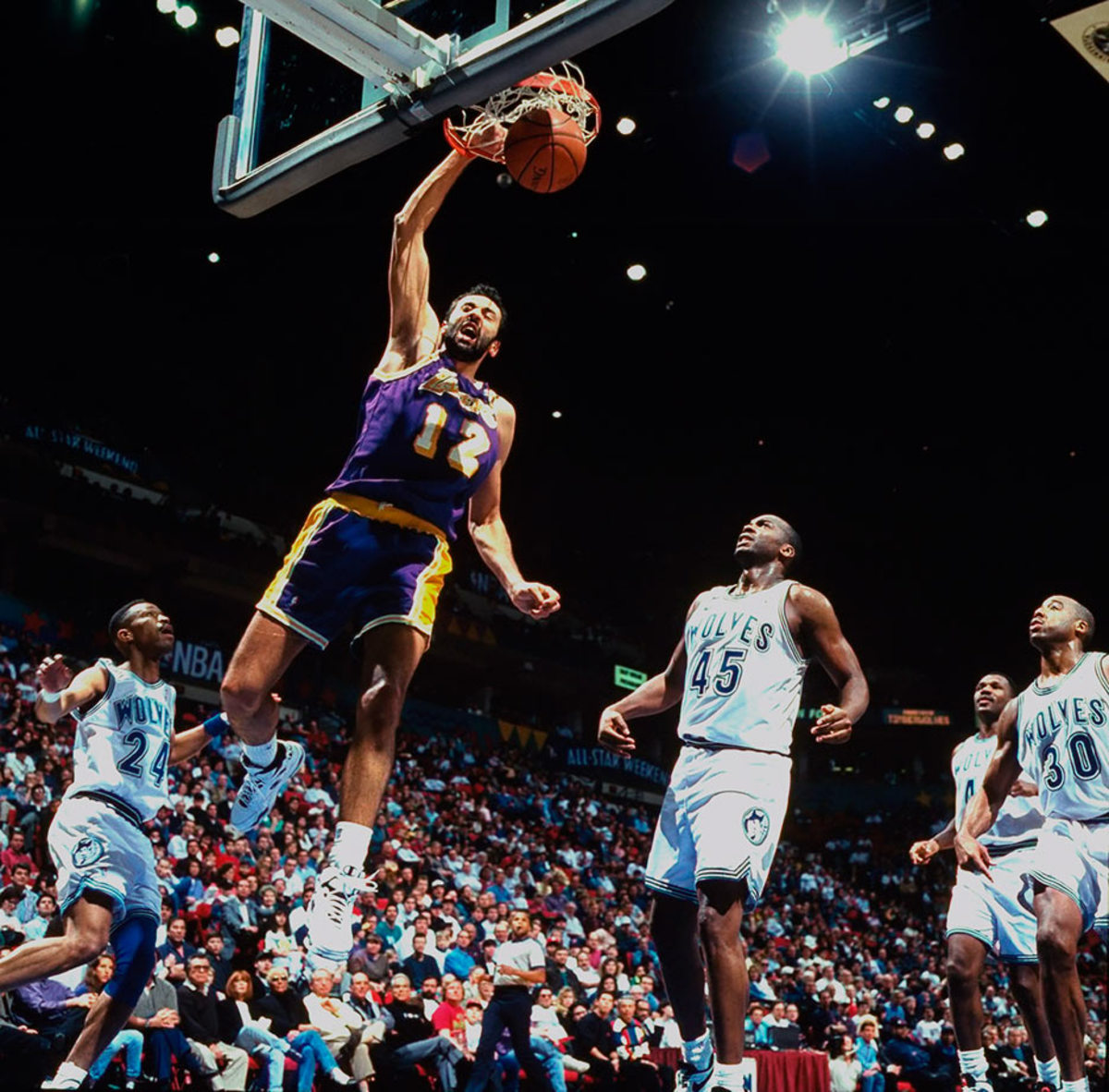
How often do you get a 16-year center this late in the draft? Divac was one of the best passing big men in the modern era.
No. 27: Dennis Rodman, Detroit Pistons (1986)
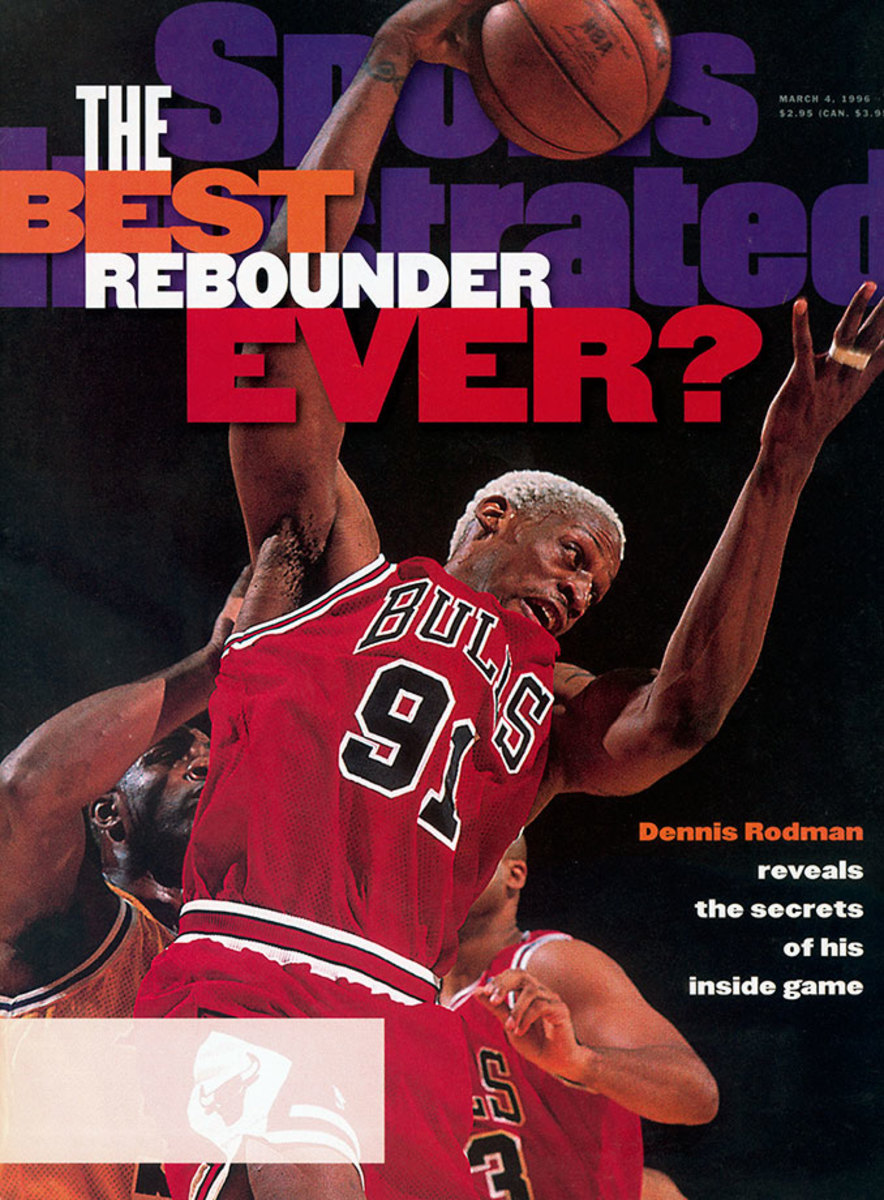
He became so much more than anyone could have predicted — in all kinds of ways. Rodman contributed to five championship teams in Detroit (two) and Chicago (three), exemplifying the kind of high-effort defender and rebounder teams are often seeking with a late pick.
No. 28: Tony Parker, San Antonio Spurs (2001)
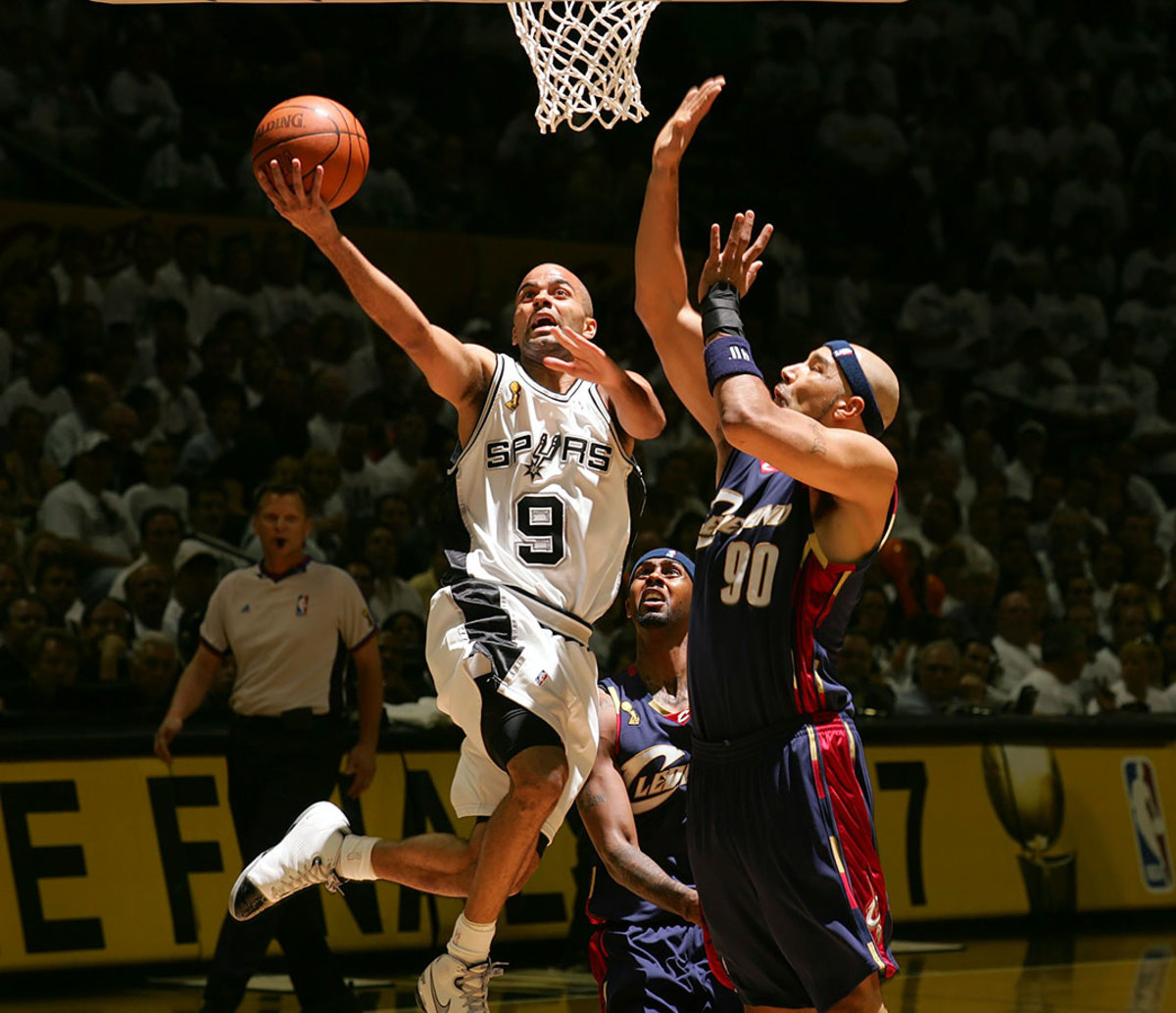
Yes, the Spurs were lucky to win the lottery twice when David Robinson and Tim Duncan were the No. 1 picks. But they also discovered Manu Ginobili at No. 57 and their elite point guard and future NBA Finals MVP at this slot.
No. 29: Dennis Johnson, Seattle SuperSonics (1976)
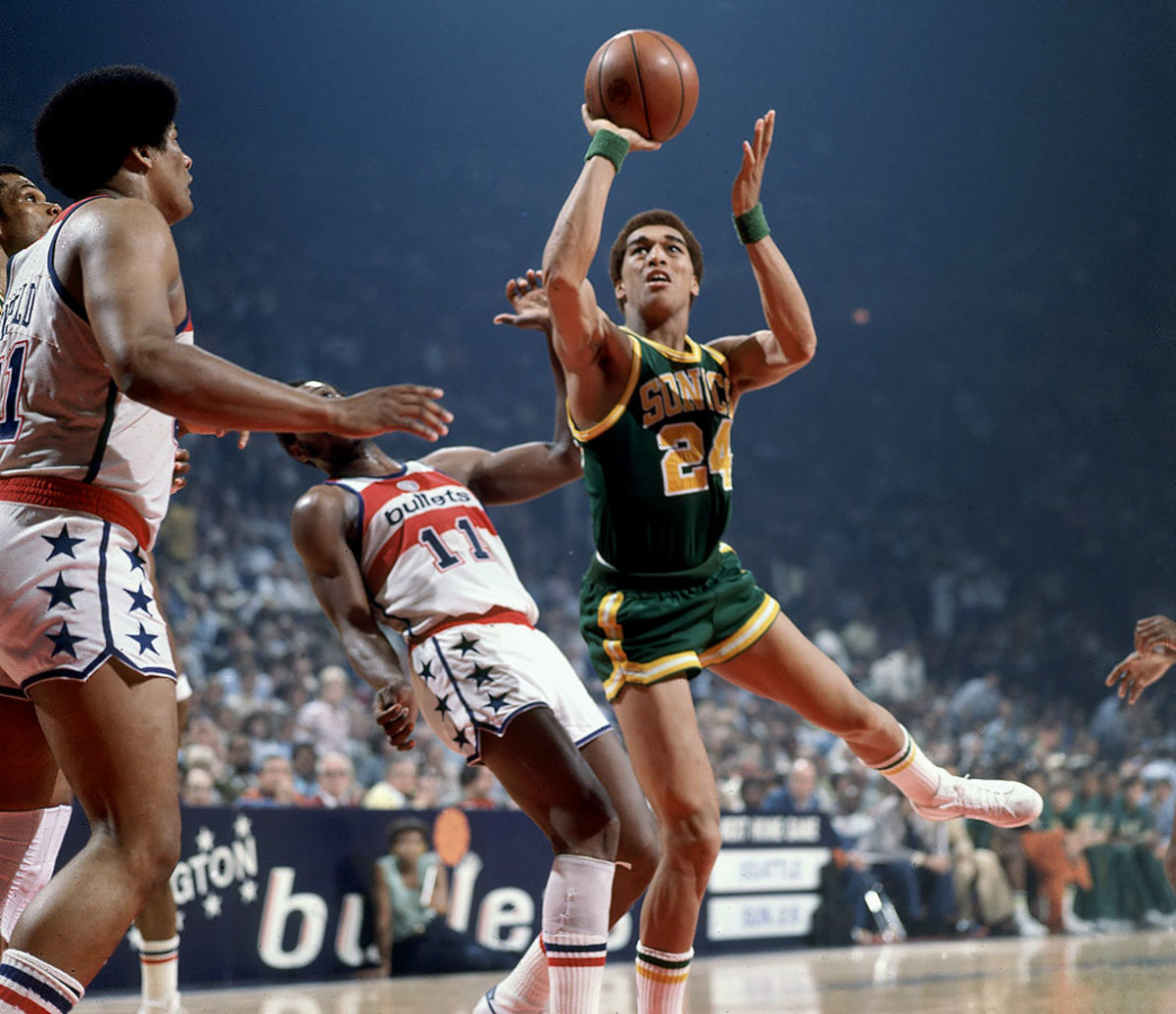
Johnson was never viewed as a great shooter; he nonetheless helped lead Seattle and Boston to three championships combined while playing the kind of defense that posthumously earned him a place in the Hall of Fame.
No. 30: Gilbert Arenas, Golden State Warriors (2001)
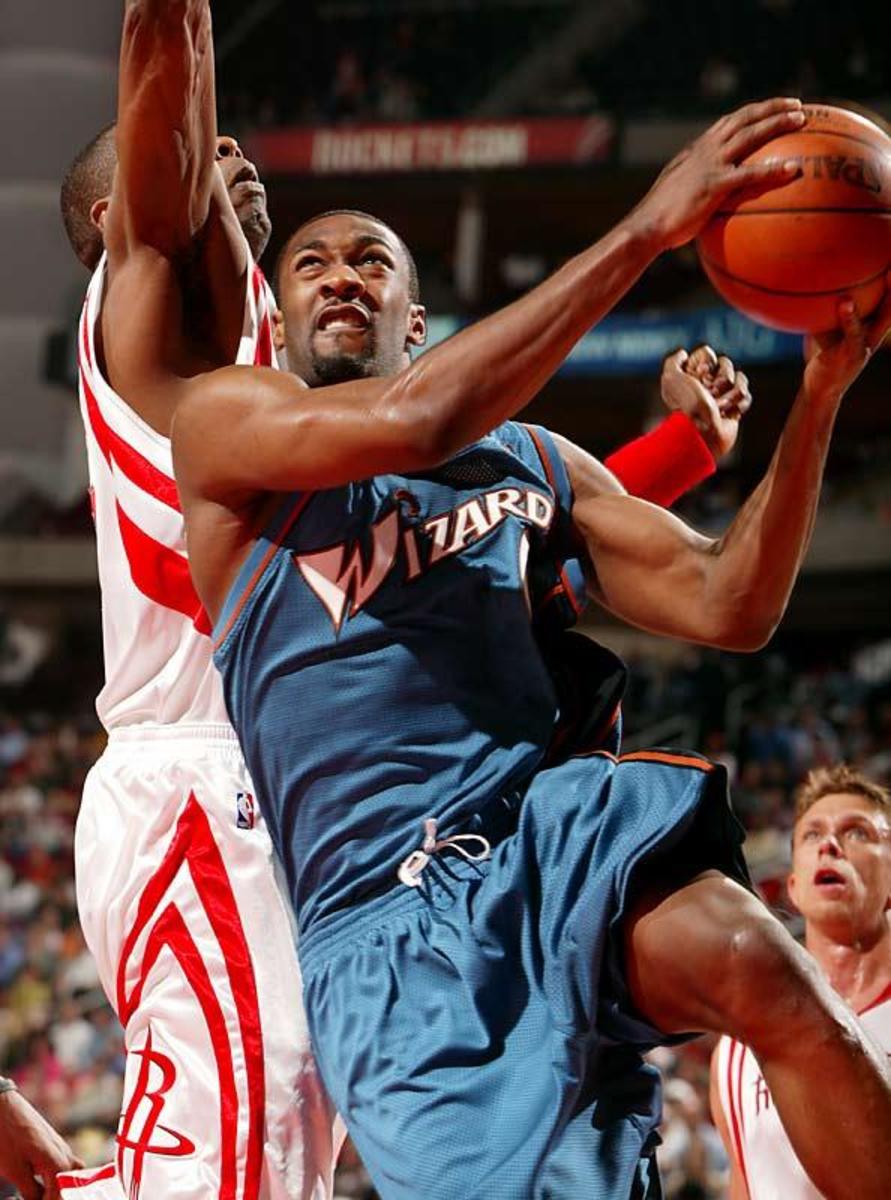
Arenas drew laughs at his introductory Golden State news conference when he predicted he would be a starter in his rookie year. Not only did he prove to be correct in that assessment, but he also turned into an All-NBA point guard with the Wizards.
A.J. English, Iona
Big Board: 60
English is about to turn 24 but was highly productive in college. He has deep range and a pretty well-rounded game, but is an undersized two and not quite the ballhandler to run point in the NBA. His father played in the NBA and his statistical output and Portsmouth MVP title will get him invited to Summer League. He will have to take the long road, again.
Sheldon McClellan, Miami
Big Board: N/A
McClellan can really score and will reportedly sign a partially guaranteed deal with the Wizards. He’s athletic and has good size at shooting guard. He struggles defensively and is going to have to prove himself there. He can be a bit too flashy sometimes, as well. There’s some upside, but he’s 23.
Ron Baker, Wichita State
Big Board: N/A
Baker is a tough, well-rounded guard who can shoot and reportedly agreed to a partially guaranteed deal with the Knicks, who added Cleanthony Early from Wichita State in the 2014 draft. He’s experienced and should have a chance to make the roster given New York’s situation. He’s an overachiever and will have to keep overachieving, given that he lacks typical NBA-level athletic tools.
